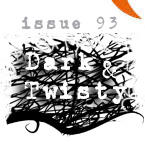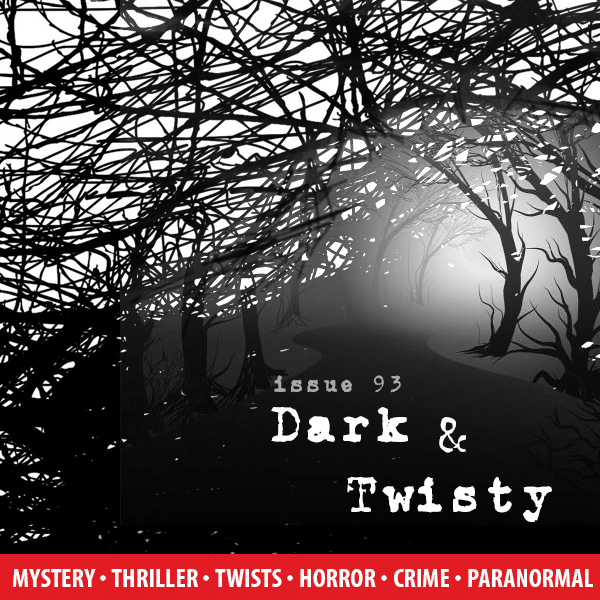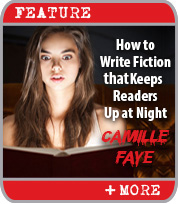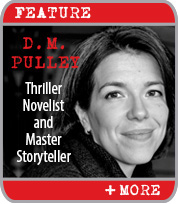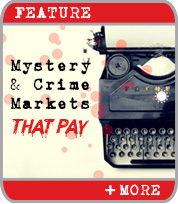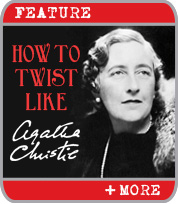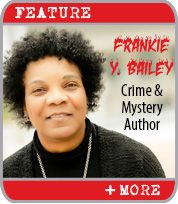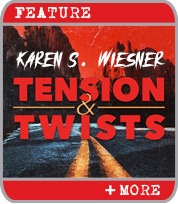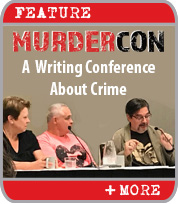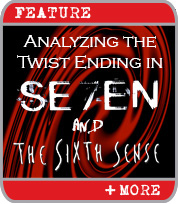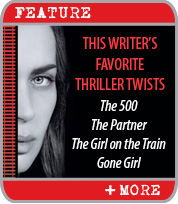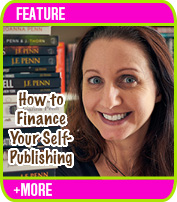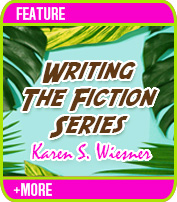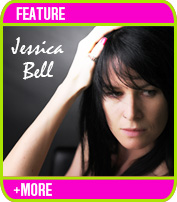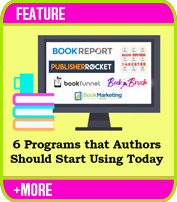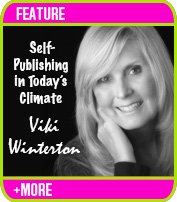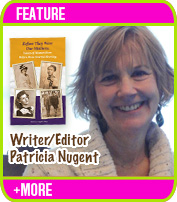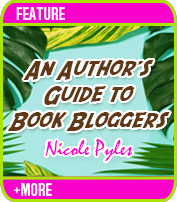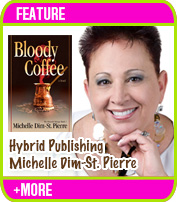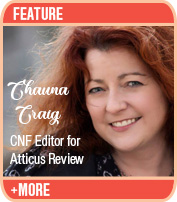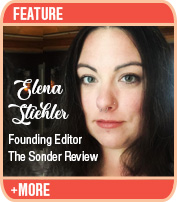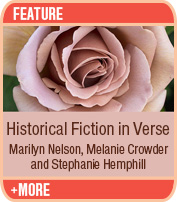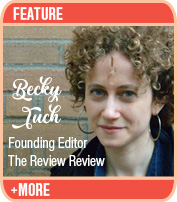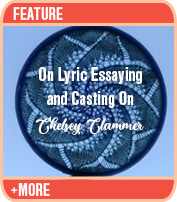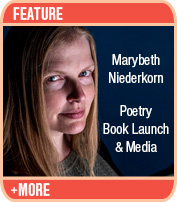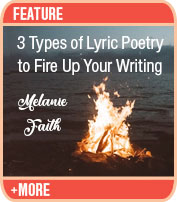October-December '19 (93)
October-December '19 (93)
July-September '19 (92)
July-September '19 (92)
May-June '19 (91)
May-June '19 (91)
February-April '19 (90)
February-April '19 (90)
December-January '19 (89)
December-January '19 (89)
May-August '16 (69)
May-August '16 (69)
January-March '16 (68)
January-March '16 (68)
September-December '15 (66)
September-December '15 (66)
May-August '15 (60)
May-August '15 (60)
January-April '15 (59)
January-April '15 (59)
August-December '13 (58)
August-December '13 (58)
July-September '13 (57)
July-September '13 (57)
May-June '13 (56)
May-June '13 (56)
March-April '13 (55)
March-April '13 (55)
January-February '13 (54)
January-February '13 (54)
November-December '12 (53)
November-December '12 (53)
September-October '12 (52)
September-October '12 (52)
July-August '12 (51)
July-August '12 (51)
May-June '12 (50)
May-June '12 (50)
March-April '12 (49)
March-April '12 (49)
January-February '12 (48)
January-February '12 (48)
September-October '11 (47)
September-October '11 (47)
July-August '11 (46)
July-August '11 (46)
May-June '11 (45)
May-June '11 (45)
March-April '11 (44)
March-April '11 (44)
January-February '11 (43)
January-February '11 (43)
November-December '10 (42)
November-December '10 (42)
September-October '10 (41)
September-October '10 (41)
July-August '10 (40)
July-August '10 (40)
May-June '10 (39)
May-June '10 (39)
March-April '10 (38)
March-April '10 (38)
February '10 (37)
February '10 (37)
January '10 (36)
January '10 (36)
December '09 (35)
December '09 (35)
November '09 (34)
November '09 (34)
September-October '09 (33)
September-October '09 (33)
August '09 (32)
August '09 (32)
July '09 (31)
July '09 (31)
May-June '09 (30)
May-June '09 (30)
April '09 (29)
April '09 (29)
March '09 (28)
March '09 (28)
February '09 (27)
February '09 (27)
January '09 (26)
January '09 (26)
November-December '08 (25)
November-December '08 (25)
September-October '08 (24)
September-October '08 (24)
August '08 (23)
August '08 (23)
July '08 (22)
July '08 (22)
May_June '08 (21)
May_June '08 (21)
April '08 (20)
April '08 (20)
March '08 (19)
March '08 (19)
February '08 (18)
February '08 (18)
January '08 (17)
January '08 (17)
December '07 (16)
December '07 (16)
November '07 (15)
November '07 (15)
October '07 (14)
October '07 (14)
September '07 (13)
September '07 (13)
August '07 (12)
August '07 (12)
July '07 (11)
July '07 (11)
June '07 (10)
June '07 (10)
May '07 (9)
May '07 (9)
April '07 (8)
April '07 (8)
March '07 (7)
March '07 (7)
February '07 (6)
February '07 (6)
January '07 (5)
January '07 (5)
December '06 (4)
December '06 (4)
November '06 (3)
November '06 (3)
October '06 (2)
October '06 (2)
September '06 (1)
September '06 (1)
A Guide to Creating and Publishing Chrity Anthologies by Amanda Nicholson (96)
A Guide to Creating and Publishing Chrity Anthologies by Amanda Nicholson (96)
In Conversation with Literary Agent Paula Munier (96)
In Conversation with Literary Agent Paula Munier (96)
In Media Res by Cindy Skaggs (96)
In Media Res by Cindy Skaggs (96)
Making Something Sexy is Hard Work by Evette Davis (96)
Making Something Sexy is Hard Work by Evette Davis (96)
On Submission with Lorette C. Luzajic, Founding Editor of The Ekphrastic Review and The Mackinaw (96)
On Submission with Lorette C. Luzajic, Founding Editor of The Ekphrastic Review and The Mackinaw (96)
How to Write for Chicken Soup for the Soul by Allison Lynn Flemming (96)
How to Write for Chicken Soup for the Soul by Allison Lynn Flemming (96)
On Submission with Five Minutes Editor-in-Chief Susanna Baird (96)
On Submission with Five Minutes Editor-in-Chief Susanna Baird (96)
How to Become a Digital Marketing Writer byt Jane Fazackarley (96)
How to Become a Digital Marketing Writer byt Jane Fazackarley (96)
How to Stick the Landing On Your Short Story's Ending (96)
How to Stick the Landing On Your Short Story's Ending (96)
In Conversation with Tom Bromley, Head of Learning at Reedsy (96)
In Conversation with Tom Bromley, Head of Learning at Reedsy (96)
How to Become a Feel-Good Romance Writer byt Julie Shackman (96)
How to Become a Feel-Good Romance Writer byt Julie Shackman (96)
Reaching Readers on the Book Club Circuit (96)
Reaching Readers on the Book Club Circuit (96)
In Conversation with Celeste Davidson, CEO of Bardsy (96)
In Conversation with Celeste Davidson, CEO of Bardsy (96)
Introduction to Writing True Crime by Renee Roberson (96)
Introduction to Writing True Crime by Renee Roberson (96)
In Conversation with Dr. Megan Pillow, Award-Winning Writer and Teacher (96)
In Conversation with Dr. Megan Pillow, Award-Winning Writer and Teacher (96)
How to Become a Health Writer (96)
How to Become a Health Writer (96)
On Submission with Vinspire Publishing: Founding Editor Dawn Carrington (96)
On Submission with Vinspire Publishing: Founding Editor Dawn Carrington (96)
How to Become a Sensitivity Reader (96)
How to Become a Sensitivity Reader (96)
Giving Your Book a Second Chance: Relaunching With Marketing that Makes a Difference (96)
Giving Your Book a Second Chance: Relaunching With Marketing that Makes a Difference (96)
Making the Leap From Printed Page to Big Screen (96)
Making the Leap From Printed Page to Big Screen (96)
On Submission with Gold Man Review Founding Editor Heather Cuthbertson (96)
On Submission with Gold Man Review Founding Editor Heather Cuthbertson (96)
How to Become a Commerce Writer (96)
How to Become a Commerce Writer (96)
Why Narrative Poetry is Ink the Genre You Should Explore Next (96)
Why Narrative Poetry is Ink the Genre You Should Explore Next (96)
On Submission with Purple Ink Press Founding Editor Yael Valencia Aldana (96)
On Submission with Purple Ink Press Founding Editor Yael Valencia Aldana (96)
How Dreams and Visions Can Guide Your Writing: Interview with Anna Quinn, Author of Angeline (96)
How Dreams and Visions Can Guide Your Writing: Interview with Anna Quinn, Author of Angeline (96)
In Conversation with Nicole Breit, Award-Winning Author and Instructor (96)
In Conversation with Nicole Breit, Award-Winning Author and Instructor (96)
On Submission with Ink Sweat and Tears Publisher Kate Birch (96)
On Submission with Ink Sweat and Tears Publisher Kate Birch (96)
Help Your Manuscript Take Off with Primary Sources (96)
Help Your Manuscript Take Off with Primary Sources (96)
Use the Funnel: How to Target Your Audience When Marketing Your Book (96)
Use the Funnel: How to Target Your Audience When Marketing Your Book (96)
Choose Your Own Book Marketing Adventure in 2024 (96)
Choose Your Own Book Marketing Adventure in 2024 (96)
On Submission with Indie Bites Editors Josie Jeffrey and Adie Hart (95)
On Submission with Indie Bites Editors Josie Jeffrey and Adie Hart (95)
Empowering YA Anxiety with, Giant Man-Eating Butterflies: Interview with Jennifer D. Lyle, Author of Swarm (95)
Empowering YA Anxiety with, Giant Man-Eating Butterflies: Interview with Jennifer D. Lyle, Author of Swarm (95)
On Submission with ELJ, Prose and CNF Editor Diane Gottlieb (95)
On Submission with ELJ, Prose and CNF Editor Diane Gottlieb (95)
Spoonbridge Press: Helping Authors Navigate the World of Self-Publishing (95)
Spoonbridge Press: Helping Authors Navigate the World of Self-Publishing (95)
On Submission with Sport Stories Press, Editor-in-Chief Dr. Anne Greenawalt (95)
On Submission with Sport Stories Press, Editor-in-Chief Dr. Anne Greenawalt (95)
Tag-Team Editors: How We Helped Each Other Write Our Books (95)
Tag-Team Editors: How We Helped Each Other Write Our Books (95)
Best Practices for Reading Submission Guidelines (95)
Best Practices for Reading Submission Guidelines (95)
On Submission with Fictive Dream, Founding Editor Laura Black (95)
On Submission with Fictive Dream, Founding Editor Laura Black (95)
Meet Candi Sary, Author of Magdelena: Persistence, Magic, and the Character That Disrupted Her Plans (95)
Meet Candi Sary, Author of Magdelena: Persistence, Magic, and the Character That Disrupted Her Plans (95)
Embrace the Blank Page: 5 Techniques of Daily Writing When You Don't Know What to Write (95)
Embrace the Blank Page: 5 Techniques of Daily Writing When You Don't Know What to Write (95)
The Three Things I Wish I Knew Before I Wrote My First Book (95)
The Three Things I Wish I Knew Before I Wrote My First Book (95)
Ten Tips to Refresh Your Writing Life (95)
Ten Tips to Refresh Your Writing Life (95)
In Conversation with Sarah Freligh, Award-Winning Author and Instructor (95)
In Conversation with Sarah Freligh, Award-Winning Author and Instructor (95)
Finding Time to Write Your Novel (95)
Finding Time to Write Your Novel (95)
On Submission with eMerge Magazine Managing Editor Joy Clark (95)
On Submission with eMerge Magazine Managing Editor Joy Clark (95)
As I See It: How to Pick the Best POV for Your Fiction (95)
As I See It: How to Pick the Best POV for Your Fiction (95)
On Submission With Tangled Locks Founding Editor Teresa Berkowitz (95)
On Submission With Tangled Locks Founding Editor Teresa Berkowitz (95)
Crafting Fantasy Fiction with Author Kate Ristau (95)
Crafting Fantasy Fiction with Author Kate Ristau (95)
Crafting the Right Pitch for Media Exposure (95)
Crafting the Right Pitch for Media Exposure (95)
On Submission With Mother-Daughter Team, Sofia Aquilar and Lulu Lerma-Aquilar of Mag 20/20 (95)
On Submission With Mother-Daughter Team, Sofia Aquilar and Lulu Lerma-Aquilar of Mag 20/20 (95)
Writing and Researching Historical Fiction (95)
Writing and Researching Historical Fiction (95)
On Submission With Courtney Harler, Editor-in-Chief of CRAFT (95)
On Submission With Courtney Harler, Editor-in-Chief of CRAFT (95)
Keep the Series Fresh (95)
Keep the Series Fresh (95)
On Submission With Suzanne Craig-Whytock, Editor-in-Chief of DarkWinter Literary Magazine (95)
On Submission With Suzanne Craig-Whytock, Editor-in-Chief of DarkWinter Literary Magazine (95)
On Submission With Brooke Warner, Publisher of She Writes Press (95)
On Submission With Brooke Warner, Publisher of She Writes Press (95)
How to Appropriately Write Race and Ethnicity in Fiction (95)
How to Appropriately Write Race and Ethnicity in Fiction (95)
On Submission With Sassee Magazine Editor Sarah Elaine Hawkinson (95)
On Submission With Sassee Magazine Editor Sarah Elaine Hawkinson (95)
Every Protagonist is a Superhero (95)
Every Protagonist is a Superhero (95)
Facebook and Amazon Ads: Learn a Proven Method for Authors with Matthew J. Holmes(95)
Facebook and Amazon Ads: Learn a Proven Method for Authors with Matthew J. Holmes(95)
On Submission With Off Topic Publishing: Interview with Editor-in-Chief Marion Lougheed (95)
On Submission With Off Topic Publishing: Interview with Editor-in-Chief Marion Lougheed (95)
But It Really Happened That Way! Tips for Blending Real Life Into Fiction (95)
But It Really Happened That Way! Tips for Blending Real Life Into Fiction (95)
Don't Wait for luck: Sophie Poldermans Shares How to Create Momentum on a Topic (95)
Don't Wait for luck: Sophie Poldermans Shares How to Create Momentum on a Topic (95)
In Conversation With Award Winning Writer Flash Instructor Kathy Fish (95)
In Conversation With Award Winning Writer Flash Instructor Kathy Fish (95)
The One Two Punch Story Opening by Madison Estes (95)
The One Two Punch Story Opening by Madison Estes (95)
From Journalist to Novelist: Crafting Characters with the 5 Ws and an H by Ekta Garg (95)
From Journalist to Novelist: Crafting Characters with the 5 Ws and an H by Ekta Garg (95)
Worldbuild Like An Anthropologist by Shana Scott (95)
Worldbuild Like An Anthropologist by Shana Scott (95)
On Submission with Lisa Duff of Rivercliff Books and Media (95)
On Submission with Lisa Duff of Rivercliff Books and Media (95)
Perseverance and Strength: How Author Danica Davidson Worked with Holocaust Survivor, Eva Mozes Kor, to Publish Her Story (95)
Perseverance and Strength: How Author Danica Davidson Worked with Holocaust Survivor, Eva Mozes Kor, to Publish Her Story (95)
How to Have the Right Voice for Middle Grade (95)
How to Have the Right Voice for Middle Grade (95)
Isolated Vocals: Writing Dialogue, Speeches, and Audio Scripts (95)
Isolated Vocals: Writing Dialogue, Speeches, and Audio Scripts (95)
On Writing and Community: JC Peterson, Author of the YA Novel, Being Mary Bennett (95)
On Writing and Community: JC Peterson, Author of the YA Novel, Being Mary Bennett (95)
3 Ways to Become a Better Podcast Guest (95)
3 Ways to Become a Better Podcast Guest (95)
We Can Make It Through This: Chelsey Clammer on Essay Writing, Trauma, Resiliency, and Her Third Essay Collection, Human Heartbeat Detected (95)
We Can Make It Through This: Chelsey Clammer on Essay Writing, Trauma, Resiliency, and Her Third Essay Collection, Human Heartbeat Detected (95)
Never Too Late: Helena Rho Talks About Her Memoir American Seoul and Writing as a Way to Move Forward Through Life (95)
Never Too Late: Helena Rho Talks About Her Memoir American Seoul and Writing as a Way to Move Forward Through Life (95)
On Submission with Red Hen Press Deputy Director Tobi Harper (95)
On Submission with Red Hen Press Deputy Director Tobi Harper (95)
Passion and Perseverance Paved the Way for Award-Winning Writer and Poet Ruth Moose (95)
Passion and Perseverance Paved the Way for Award-Winning Writer and Poet Ruth Moose (95)
On Submission with Under the Sun Editor Cindy Bradley (95)
On Submission with Under the Sun Editor Cindy Bradley (95)
Danger Around the Corner: A Discussion with True Crime Author Leslie Rule (95)
Danger Around the Corner: A Discussion with True Crime Author Leslie Rule (95)
On Submission with Healthline Media Editor Elinor Hills (95)
On Submission with Healthline Media Editor Elinor Hills (95)
Sometimes Love is Funny: Author Denise Williams Chats About Romance Writing, Creativity, and Body Positivity (95)
Sometimes Love is Funny: Author Denise Williams Chats About Romance Writing, Creativity, and Body Positivity (95)
How to Rock in a Different Genre (95)
How to Rock in a Different Genre (95)
Getting Published in Modern Love: Christie Tate Shares Her Experience (95)
Getting Published in Modern Love: Christie Tate Shares Her Experience (95)
On Submission With... Welter: Interview with Editor-in-Chief Betsy Boyd and Poetry Editor Micaela Walley (95)
On Submission With... Welter: Interview with Editor-in-Chief Betsy Boyd and Poetry Editor Micaela Walley (95)
25 Years of Journaling for the Health of It: Chatting with Mari L. McCarthy (95)
25 Years of Journaling for the Health of It: Chatting with Mari L. McCarthy (95)
Creating Choice: What I Learned From Conversations with Working Writers (95)
Creating Choice: What I Learned From Conversations with Working Writers (95)
Writing in Deep POV: An Interview with Lisa Hall-Wilson (95)
Writing in Deep POV: An Interview with Lisa Hall-Wilson (95)
On Submission with Barzakh Magazine: Christy O'Callaghan, Managing Editor (95)
On Submission with Barzakh Magazine: Christy O'Callaghan, Managing Editor (95)
Susan Shapiro's The Book Bible Offers Insider Tips on Getting Published (94)
Susan Shapiro's The Book Bible Offers Insider Tips on Getting Published (94)
On Submission with Literary Agent Amy Giuffrida, JD Lit (94)
On Submission with Literary Agent Amy Giuffrida, JD Lit (94)
On Submission with Fractured Lit: K.B. Carle, Associate Editor (94)
On Submission with Fractured Lit: K.B. Carle, Associate Editor (94)
On Submission with X-R-A-Y Literary Magazine: Jo Vanish, CNF Editor (94)
On Submission with X-R-A-Y Literary Magazine: Jo Vanish, CNF Editor (94)
On Submission with Flypaper Lit: Taylor Byas, Poetry Editor (94)
On Submission with Flypaper Lit: Taylor Byas, Poetry Editor (94)
Emily Ladau Shines a Light on Disability (94)
Emily Ladau Shines a Light on Disability (94)
A Bold Voice, and the inspiration to SLAY: Brittney Morris (94)
A Bold Voice, and the inspiration to SLAY: Brittney Morris (94)
Craft From Inside a Literary Journal with Emily Everett of The Common (94)
Craft From Inside a Literary Journal with Emily Everett of The Common (94)
Using Save the Cat to Write Memoir, and Cracking the Beat Sheet Course Review (94)
Using Save the Cat to Write Memoir, and Cracking the Beat Sheet Course Review (94)
On Submission With Exposition Review (94)
On Submission With Exposition Review (94)
On Submission With Marissa Glover, Senior Editor, The Lascaux Review: (94)
On Submission With Marissa Glover, Senior Editor, The Lascaux Review: (94)
On Submission With Lilly Dancyger: Author, Essayist, Editor (94)
On Submission With Lilly Dancyger: Author, Essayist, Editor (94)
Susan Shapiro Discovers the Power of Foregiveness (94)
Susan Shapiro Discovers the Power of Foregiveness (94)
On Submission With Literary Agent Maria Rogers (94)
On Submission With Literary Agent Maria Rogers (94)
On Submission With Janna Marlies Maron: Founding Editor of Under the Gum Tree (94)
On Submission With Janna Marlies Maron: Founding Editor of Under the Gum Tree (94)
Lessons From A Self-Taught Writer: Bestselling Author Mary Monroe (94)
Lessons From A Self-Taught Writer: Bestselling Author Mary Monroe (94)
When Your Freelance Writing Client Says Goodbye (94)
When Your Freelance Writing Client Says Goodbye (94)
Collaborative Writing: Henry Winkler and Lin Oliver (94)
Collaborative Writing: Henry Winkler and Lin Oliver (94)
How to Write Fiction that Keeps Readers Up at Night (93)
How to Write Fiction that Keeps Readers Up at Night (93)
An Interview with D.M. Pulley, Thriller Novelist and Master Storyteller (93)
An Interview with D.M. Pulley, Thriller Novelist and Master Storyteller (93)
How to Twist Like Agatha Christie (93)
How to Twist Like Agatha Christie (93)
Why Women Crime Writers Are Killing It (93)
Why Women Crime Writers Are Killing It (93)
Straddling Two Worlds of Crime and Mystery Writing with Frankie Y. Bailey (93)
Straddling Two Worlds of Crime and Mystery Writing with Frankie Y. Bailey (93)
Tension and Twists by Karen S. Wiesner (93)
Tension and Twists by Karen S. Wiesner (93)
Analyzing the Twist Ending in Se7en and The Sixth Sense (93)
Analyzing the Twist Ending in Se7en and The Sixth Sense (93)
We Speak for the Dead: The Creation of a Writing Conference All About Crime (93)
We Speak for the Dead: The Creation of a Writing Conference All About Crime (93)
Mystery Markets that Pay Writers (93)
Mystery Markets that Pay Writers (93)
This Writer’s Favorite Thriller Twists: From The Partner to Gone Girl (93)
This Writer’s Favorite Thriller Twists: From The Partner to Gone Girl (93)
I Want to Write a Series. Now What? (92)
I Want to Write a Series. Now What? (92)
Jessica Bell: Peeking Behind the Curtain of Indie and Self-Publishing (92)
Jessica Bell: Peeking Behind the Curtain of Indie and Self-Publishing (92)
How to Finance Your Self-Publishing Efforts Through Crowdsourcing (92)
How to Finance Your Self-Publishing Efforts Through Crowdsourcing (92)
6 Programs that Authors Should Start Using Today (92)
6 Programs that Authors Should Start Using Today (92)
The Reality of Self-Publishing in Today’s Publishing Environment: Interview with Viki Winterton (92)
The Reality of Self-Publishing in Today’s Publishing Environment: Interview with Viki Winterton (92)
How to Use Small Amazon Categories for Big Sales (92)
How to Use Small Amazon Categories for Big Sales (92)
An Author’s Guide to Book Bloggers (92)
An Author’s Guide to Book Bloggers (92)
From Grief and Rejection to Success in Self-Publication with Writer/Editor Patricia A. Nugent (92)
From Grief and Rejection to Success in Self-Publication with Writer/Editor Patricia A. Nugent (92)
Michelle Dim-St. Pierre Helps Us Explore Hybrid Publishing (92)
Michelle Dim-St. Pierre Helps Us Explore Hybrid Publishing (92)
A Provocation to Sorrow and Wonder: Lyric Essays and the Power of Language to Transform: An Interview with Chauna Craig, CNF Editor for Atticus Review (91)
A Provocation to Sorrow and Wonder: Lyric Essays and the Power of Language to Transform: An Interview with Chauna Craig, CNF Editor for Atticus Review (91)
From the Desk of Elena Stiehler: Lyric Editor of The Sonder Review: The Lyric Essay and Working with Authors (91)
From the Desk of Elena Stiehler: Lyric Editor of The Sonder Review: The Lyric Essay and Working with Authors (91)
To Submit or Not Submit? An Interview with Becky Tuch, Founding Editor of The Review Review (91)
To Submit or Not Submit? An Interview with Becky Tuch, Founding Editor of The Review Review (91)
On Lyric Essaying and Casting On (91)
On Lyric Essaying and Casting On (91)
Switch it up! Literary Magazines Seeking Unusual and Uncommon Stories (91)
Switch it up! Literary Magazines Seeking Unusual and Uncommon Stories (91)
Seeking the Soul of the Story: Historical Fiction in Verse: A Conversation with Marilyn Nelson, Stephanie Hemphill, and Melanie Crowder (91)
Seeking the Soul of the Story: Historical Fiction in Verse: A Conversation with Marilyn Nelson, Stephanie Hemphill, and Melanie Crowder (91)
Three Types of Lyric Poetry to Fire Up Your Writing Practice (91)
Three Types of Lyric Poetry to Fire Up Your Writing Practice (91)
Utilizing the Media with Marybeth Niederkorn (91)
Utilizing the Media with Marybeth Niederkorn (91)
Being Smart with Your Marketing Dollars: an Interview with Skye Warren (90)
Being Smart with Your Marketing Dollars: an Interview with Skye Warren (90)
How Podcasting Can Help Increase Your Presence for Your Writing Career (90)
How Podcasting Can Help Increase Your Presence for Your Writing Career (90)
Book Marketing with SEO: Interview with Heather Lloyd Martin (90)
Book Marketing with SEO: Interview with Heather Lloyd Martin (90)
How to Use Instagram to Build Your Audience (90)
How to Use Instagram to Build Your Audience (90)
The Lazy Guide to Twitter (and My 5-5-5 Rule) (90)
The Lazy Guide to Twitter (and My 5-5-5 Rule) (90)
How to Build Your Author Platform Before You Are Published (90)
How to Build Your Author Platform Before You Are Published (90)
What I Learned From My Second Book Launch (90)
What I Learned From My Second Book Launch (90)
How to Write Blurbs that Sell! (90)
How to Write Blurbs that Sell! (90)
How to Write an Effective Nonfiction Book Proposal (90)
How to Write an Effective Nonfiction Book Proposal (90)
Pitch This Exceptional Breed to Get the Best Freelance Clients (89)
Pitch This Exceptional Breed to Get the Best Freelance Clients (89)
Dos and Don’ts on Dipping Your Toe in the Freelance Writing Pool(89)
Dos and Don’ts on Dipping Your Toe in the Freelance Writing Pool(89)
Self-Publishing Mistakes I Made (And How I’m Fixing Them (87)
Self-Publishing Mistakes I Made (And How I’m Fixing Them (87)
Pay-to-Publish Companies: Are They All Out to Get You? (87)
Pay-to-Publish Companies: Are They All Out to Get You? (87)
How to Write For Magazines that Aren’t in Your Demographics (86)
How to Write For Magazines that Aren’t in Your Demographics (86)
How to Increase Your Writing Productivity (86)
How to Increase Your Writing Productivity (86)
Radiate the Question Mark: How Speculative Memoir Offers Exploration, Not Answers - An Interview with Sofia Samatar (85)
Radiate the Question Mark: How Speculative Memoir Offers Exploration, Not Answers - An Interview with Sofia Samatar (85)
Snail to Sprint: How to Write Your First Draft in 4 Weeks (84)
Snail to Sprint: How to Write Your First Draft in 4 Weeks (84)
How to Find the an Right Markets for Your Ideas (81)
How to Find the an Right Markets for Your Ideas (81)
5 Steps to Building an Online Business (81)
5 Steps to Building an Online Business (81)
Raise Your Income Writing About Agriculture by Deborah Jean Sergeant (79)
Raise Your Income Writing About Agriculture by Deborah Jean Sergeant (79)
Making Young Readers Laugh by Kerrie Flanagan (78)
Making Young Readers Laugh by Kerrie Flanagan (78)
Tracking Your Banged Buck: Make Sure Your PR Pays Off by Devon Ellington (78)
Tracking Your Banged Buck: Make Sure Your PR Pays Off by Devon Ellington (78)
Interview with Literary Agent Stephanie Phillips with SBR Media by Amber Garza (76)
Interview with Literary Agent Stephanie Phillips with SBR Media by Amber Garza (76)
How to Be a Successful International Freelance Writer by Pinar Tarhan (75)
How to Be a Successful International Freelance Writer by Pinar Tarhan (75)
Writing About Sensitive Topics For Young Adults: Ellen Hopkins, Cheryl Rainfield, and Jay Asher by Kerrie Flanagan (74)
Writing About Sensitive Topics For Young Adults: Ellen Hopkins, Cheryl Rainfield, and Jay Asher by Kerrie Flanagan (74)
How to Write With (or Despite) Kids by Andrea Lani (73)
How to Write With (or Despite) Kids by Andrea Lani (73)
Your Writing Niche is More Than a Topic by Kristy Rice (71)
Your Writing Niche is More Than a Topic by Kristy Rice (71)
How I Built a Platform of 100 Crowdfunding Supporters in 45 Days by Dorit Sasson (70)
How I Built a Platform of 100 Crowdfunding Supporters in 45 Days by Dorit Sasson (70)
Interview with Kelly Sundberg, Brevity's Managing Editor by Kathy Higgs-Coulthard (69)
Interview with Kelly Sundberg, Brevity's Managing Editor by Kathy Higgs-Coulthard (69)
Telling the Story in Captions: Writing Cutlines for Pictorial Histories by Cheryl Eichar Jett (69)
Telling the Story in Captions: Writing Cutlines for Pictorial Histories by Cheryl Eichar Jett (69)
How to Write and Publish Listicles by Tiffany Doerr Guerzon (69)
How to Write and Publish Listicles by Tiffany Doerr Guerzon (69)
Making Short Work of Your Digital Platform by Cindy Eastman (69)
Making Short Work of Your Digital Platform by Cindy Eastman (69)
Huge Benefits of Writing Miniature Stories by Anne Greenawalt (69)
Huge Benefits of Writing Miniature Stories by Anne Greenawalt (69)
Making Short Gigs Sweet by Deborah Jeanne Sergeant (69)
Making Short Gigs Sweet by Deborah Jeanne Sergeant (69)
Book Taglines: Make It Snappy by K.S. Dearsley (69)
Book Taglines: Make It Snappy by K.S. Dearsley (69)
8 Easy Time Savers For Article Writing by Gila Green(69)
8 Easy Time Savers For Article Writing by Gila Green(69)
The Moral of the Miniskirt! Writing Short Blog Posts by Jennifer Brown Banks (69)
The Moral of the Miniskirt! Writing Short Blog Posts by Jennifer Brown Banks (69)
How to Write a Devotional in 300 Words or Less by Sandy Kirby Quandt (69)
How to Write a Devotional in 300 Words or Less by Sandy Kirby Quandt (69)
Your First Article: Using Your Fiction to Sell Non-Fiction by Rachel Carrington (69)
Your First Article: Using Your Fiction to Sell Non-Fiction by Rachel Carrington (69)
2 Easy Productivity Hacks for Writers by Bernadette Geyer (69)
2 Easy Productivity Hacks for Writers by Bernadette Geyer (69)
Nurturing the Talents of Writers: Literary Agent Eve Porinchak (68)
Nurturing the Talents of Writers: Literary Agent Eve Porinchak (68)
Building Lasting Relationships With Clients: Literary Agent Vicki Selvaggio (66)
Building Lasting Relationships With Clients: Literary Agent Vicki Selvaggio (66)
Writing Stories That Don't Look Like Stories by Elizabeth Harris (66)
Writing Stories That Don't Look Like Stories by Elizabeth Harris (66)
Overcoming a Writer's Identity Crisis: Find Your Writing Joy Again (56)
Overcoming a Writer's Identity Crisis: Find Your Writing Joy Again (56)
Creative Impasse: The Intersection of Creativity and Motherhood (56)
Creative Impasse: The Intersection of Creativity and Motherhood (56)
Why Weird Writing Rituals Work (56)
Why Weird Writing Rituals Work (56)
Slam: Retrain Your Writer's Brain (56)
Slam: Retrain Your Writer's Brain (56)
Spine-Tingling Tales of Suspense: How To Write a YA Psychological Thriller (56)
Spine-Tingling Tales of Suspense: How To Write a YA Psychological Thriller (56)
10 Ways to Play the Waiting Game (And Win It!) (56)
10 Ways to Play the Waiting Game (And Win It!) (56)
Life As an Editing Warrior: Revising and Slashing to Win the Battle (55)
Life As an Editing Warrior: Revising and Slashing to Win the Battle (55)
The Layered Edit: A Step-By-Step Manuscript Editing Process (55)
The Layered Edit: A Step-By-Step Manuscript Editing Process (55)
Help! I've Frankenmonstered My Manuscript! What to do When Your Revision Techniques Need Revising (55)
Help! I've Frankenmonstered My Manuscript! What to do When Your Revision Techniques Need Revising (55)
Shedding Light on the Role of the Beta Reader (55)
Shedding Light on the Role of the Beta Reader (55)
Revision, Rework, Rewrite: How to Get Your Work Back Out When Your Target Editor Says No (55)
Revision, Rework, Rewrite: How to Get Your Work Back Out When Your Target Editor Says No (55)
So, What Does A Literary Agent Do? (54)
So, What Does A Literary Agent Do? (54)
How To Win Over Literary Agents: Interview With Literary Agent Jessica Sinsheimer Of The Sarah Jane Freymann Literary Agency (54)
How To Win Over Literary Agents: Interview With Literary Agent Jessica Sinsheimer Of The Sarah Jane Freymann Literary Agency (54)
Impressing The Gatekeepers: What Agents And Editors Seek In Submissions (54)
Impressing The Gatekeepers: What Agents And Editors Seek In Submissions (54)
Avon Impulse: Bringing E-Romances Into Readers’ Hearts - A Chat With Editor Lucia Macro (54)
Avon Impulse: Bringing E-Romances Into Readers’ Hearts - A Chat With Editor Lucia Macro (54)
The New Yorker For Mothers: An Interview With Marcelle Soviero, Editor-In-Chief, Brain, Child Magazine (54)
The New Yorker For Mothers: An Interview With Marcelle Soviero, Editor-In-Chief, Brain, Child Magazine (54)
Facebook Best Practices for Profiles, Pages, Groups, and Posts (53)
Facebook Best Practices for Profiles, Pages, Groups, and Posts (53)
Social Media Slam: Using Social Media to Connect with Influencers and Gain an Audience (53)
Social Media Slam: Using Social Media to Connect with Influencers and Gain an Audience (53)
Blogging Slam: How To Get Me to Your Blog and Keep Me Coming Back, and How To Sell E-books on a Niche Blog (53)
Blogging Slam: How To Get Me to Your Blog and Keep Me Coming Back, and How To Sell E-books on a Niche Blog (53)
Where are Your Eggs? Create Multiple Streams of Income for Your Blog (53)
Where are Your Eggs? Create Multiple Streams of Income for Your Blog (53)
No Clips? No Problem. Build Your Portfolio with Stepping Stones (While Still Making Money) (52)
No Clips? No Problem. Build Your Portfolio with Stepping Stones (While Still Making Money) (52)
Writing Money: Using Your Expertise as a Writer (52)
Writing Money: Using Your Expertise as a Writer (52)
Seeking to Share Your Spiritual Side? Learn How to Write for Busted Halo (52)
Seeking to Share Your Spiritual Side? Learn How to Write for Busted Halo (52)
The Healthy Freelance Life Slam: Get Out of Your Comfort Zone (52)
The Healthy Freelance Life Slam: Get Out of Your Comfort Zone (52)
The Energizing Spirit of Transition: Divergent Paths to Publication (51)
The Energizing Spirit of Transition: Divergent Paths to Publication (51)
Behind Every Good Writer is a Great Editor: The Inside Scoop on Editing (51)
Behind Every Good Writer is a Great Editor: The Inside Scoop on Editing (51)
DIY Copyright for Self-Publishing: 5 Things You Should Know (51)
DIY Copyright for Self-Publishing: 5 Things You Should Know (51)
Creating Book Covers That Sell! (51)
Creating Book Covers That Sell! (51)
Getting the Most Bang for Your Marketing Buck: Strategies That Work With Today's Readers (51)
Getting the Most Bang for Your Marketing Buck: Strategies That Work With Today's Readers (51)
Writing a Book One Post at a Time: Interview With Nina Amir (51)
Writing a Book One Post at a Time: Interview With Nina Amir (51)
Around the World in 80 Ways: Travel Writing Opportunities (50)
Around the World in 80 Ways: Travel Writing Opportunities (50)
Books and Crannies: Living the Fairytale Life Outside the Castle (50)
Books and Crannies: Living the Fairytale Life Outside the Castle (50)
Teaching Online Equals Writing Time (50)
Teaching Online Equals Writing Time (50)
An Expat's Guide to a Portable Career: Interview with Jo Parfitt (50)
An Expat's Guide to a Portable Career: Interview with Jo Parfitt (50)
Thinking Outside the Book: Portable Careers for Writers in Japan and Beyond (50)
Thinking Outside the Book: Portable Careers for Writers in Japan and Beyond (50)
Writers on the Road: Financing Your Trip, Packing Essentials, Couchsurfing (50)
Writers on the Road: Financing Your Trip, Packing Essentials, Couchsurfing (50)
Unearthing Precious Ideas: Literary Agent Regina Brooks (49)
Unearthing Precious Ideas: Literary Agent Regina Brooks (49)
When Worlds Collide: An Outsider's Guide to Writing Multicultural Fiction (49)
When Worlds Collide: An Outsider's Guide to Writing Multicultural Fiction (49)
Build the Bridges that Let Readers Access Your Story (49)
Build the Bridges that Let Readers Access Your Story (49)
It's Not Easy Being a Historical Fiction Writer (49)
It's Not Easy Being a Historical Fiction Writer (49)
Talking Taboo with Style in Memoir Writing (49)
Talking Taboo with Style in Memoir Writing (49)
Not a Flash in the Pan: Flash Fiction Storytelling (49)
Not a Flash in the Pan: Flash Fiction Storytelling (49)
Get Organized! Expert Tips for Tackling the Messy Files and Piles (and more!) that Make Writers Stress Out (48)
Get Organized! Expert Tips for Tackling the Messy Files and Piles (and more!) that Make Writers Stress Out (48)
Investing in Your Writing Career: How to Spend Your Money Wisely (48)
Investing in Your Writing Career: How to Spend Your Money Wisely (48)
A Writer's Fitness Plan: How to Work Writing into Your Daily Life (48)
A Writer's Fitness Plan: How to Work Writing into Your Daily Life (48)
Using Linkedin Effectively: An Interview With Victoria Ipri (48)
Using Linkedin Effectively: An Interview With Victoria Ipri (48)
How to Start a Writing Business Right (48)
How to Start a Writing Business Right (48)
Culinary Creations: Whipping Up The Niche Cookbook Market (47)
Culinary Creations: Whipping Up The Niche Cookbook Market (47)
Personalize Your Parenting (Writing): The Pros and Cons of Building a Niche on Your Family's Experiences (47)
Personalize Your Parenting (Writing): The Pros and Cons of Building a Niche on Your Family's Experiences (47)
Children's Nonfiction: A Niche Worth Pursuing (47)
Children's Nonfiction: A Niche Worth Pursuing (47)
Finding the Micro-Niche in Science Writing (47)
Finding the Micro-Niche in Science Writing (47)
Pioneers of Cyberspace: Collaborative Novel Writing (47)
Pioneers of Cyberspace: Collaborative Novel Writing (47)
The Fantastic World of Kristen Painter (47)
The Fantastic World of Kristen Painter (47)
The Smell of Success: Transitioning the Pen and Paper Crowd to E-Books (46)
The Smell of Success: Transitioning the Pen and Paper Crowd to E-Books (46)
Between Magazines & Books: E-Publishing Platforms for Long-Form Journalism (46)
Between Magazines & Books: E-Publishing Platforms for Long-Form Journalism (46)
Self-Publishing: The Debate is Over (46)
Self-Publishing: The Debate is Over (46)
CHA-CHING! Selling E-Books: 5 Authors Share Their Success and Marketing Strategies (46)
CHA-CHING! Selling E-Books: 5 Authors Share Their Success and Marketing Strategies (46)
Queen of the Beach Novel: A Visit With Elin Hilderbrand (45)
Queen of the Beach Novel: A Visit With Elin Hilderbrand (45)
Write From Your Own Backyard: How to Craft a Travel Article About Your Hometown (45)
Write From Your Own Backyard: How to Craft a Travel Article About Your Hometown (45)
Writing Through Distractions: Mothering, Time, Social Media, Writer's Block (45)
Writing Through Distractions: Mothering, Time, Social Media, Writer's Block (45)
Blame it on the Book Cover: The Women's Fiction vs. Chick Lit Debate (45)
Blame it on the Book Cover: The Women's Fiction vs. Chick Lit Debate (45)
Mystery, Mayhem, and Murder: The Rules of Mystery Writing (45)
Mystery, Mayhem, and Murder: The Rules of Mystery Writing (45)
Strip and Go Naked with Adair Lara: Baring the Soul of the Personal Essay (44)
Strip and Go Naked with Adair Lara: Baring the Soul of the Personal Essay (44)
Beginning Your Memoir and Creating Your Narrative Arc (44)
Beginning Your Memoir and Creating Your Narrative Arc (44)
Finding Innocence and Experience: Voices in Memoir (44)
Finding Innocence and Experience: Voices in Memoir (44)
People are Characters Too: A Guide for Bringing the People in Your Memoir to Life (44)
People are Characters Too: A Guide for Bringing the People in Your Memoir to Life (44)
Journal Writing: Making it Personal (44)
Journal Writing: Making it Personal (44)
Journaling for Healing, Health, and Happiness (44)
Journaling for Healing, Health, and Happiness (44)
Resolve to Burn, Writer, Burn with Jillian Michaels: Fitting Exercise and Nutrition in Your Writing Plan (43)
Resolve to Burn, Writer, Burn with Jillian Michaels: Fitting Exercise and Nutrition in Your Writing Plan (43)
Making the Leap: The Transition into Full-Time Writing (43)
Making the Leap: The Transition into Full-Time Writing (43)
Get Your Marketing Plan in Shape: How to Put Muscle into a Marketing Plan (43)
Get Your Marketing Plan in Shape: How to Put Muscle into a Marketing Plan (43)
Recovering from Injury: Bouncing Back from a Rejection Letter (43)
Recovering from Injury: Bouncing Back from a Rejection Letter (43)
5 Things You Need to Know to Write for Magazines (42)
5 Things You Need to Know to Write for Magazines (42)
Ghostwriting: Writing Invisibly for Good Pay and Satisfaction (42)
Ghostwriting: Writing Invisibly for Good Pay and Satisfaction (42)
Writing for the Educational Market (42)
Writing for the Educational Market (42)
Get Covered: Media Insurance for Writers (42)
Get Covered: Media Insurance for Writers (42)
Take a Break for Creativity (41)
Take a Break for Creativity (41)
The Succulent, Bodacious, and Fabulous SARK (41)
The Succulent, Bodacious, and Fabulous SARK (41)
Creative Brainstorming for Writers (41)
Creative Brainstorming for Writers (41)
Writing a Strong Story: Beginnings, Middles, and Ends (40)
Writing a Strong Story: Beginnings, Middles, and Ends (40)
Where Are We? Using Setting and Description in Creative, Yet Crucial Ways (40)
Where Are We? Using Setting and Description in Creative, Yet Crucial Ways (40)
Creating Scenes: Fiction's Building Blocks (40)
Creating Scenes: Fiction's Building Blocks (40)
Fiction Writer's Toolkit Slam: Voice, Pacing, Using Law in Your Story (40)
Fiction Writer's Toolkit Slam: Voice, Pacing, Using Law in Your Story (40)
Avoiding Plotholes (40)
Avoiding Plotholes (40)
Red Pencil Round-Up: Self-Editing for Fiction Writers (40)
Red Pencil Round-Up: Self-Editing for Fiction Writers (40)
From Book to Big Screen: An Interview with Screenwriter Robin Swicord (39)
From Book to Big Screen: An Interview with Screenwriter Robin Swicord (39)
Make Your Book a Movie: Adapting Your Book or Story for Hollywood (39)
Make Your Book a Movie: Adapting Your Book or Story for Hollywood (39)
Coming to a TV Near You: Telefilms from Books (39)
Coming to a TV Near You: Telefilms from Books (39)
A Writer of all Trades: An Interview with Alexandra Sokoloff, Novelist and Screenwriter (39)
A Writer of all Trades: An Interview with Alexandra Sokoloff, Novelist and Screenwriter (39)
Book Trailer Basics: Bring Your Story to Life (39)
Book Trailer Basics: Bring Your Story to Life (39)
Speak Your Truth: YA Novels and Censorship (38)
Speak Your Truth: YA Novels and Censorship (38)
Write Nonfiction for Kids? Break Out with a High-Concept Idea (38)
Write Nonfiction for Kids? Break Out with a High-Concept Idea (38)
Channeling the Voice of Youth: An Interview with Ellen Hopkins (38)
Channeling the Voice of Youth: An Interview with Ellen Hopkins (38)
Blogs, Twitter, Websites and More: Connecting with Young Readers Through Social Media (38)
Blogs, Twitter, Websites and More: Connecting with Young Readers Through Social Media (38)
Delicious Dish with Shirley Jump (37)
Delicious Dish with Shirley Jump (37)
Walking the Hot-Blooded Tightrope with Shannon K. Butcher (37)
Walking the Hot-Blooded Tightrope with Shannon K. Butcher (37)
On the Steamy Side with Louisa Edwards, The Queen of Culinary Romance (37)
On the Steamy Side with Louisa Edwards, The Queen of Culinary Romance (37)
The Paranormally Perfect Romance Series of Nalini Singh (37)
The Paranormally Perfect Romance Series of Nalini Singh (37)
Beginning After NANOWRIMO (36)
Beginning After NANOWRIMO (36)
What? You're Planning a Writing Conference? No Sweat! (36)
What? You're Planning a Writing Conference? No Sweat! (36)
The Do-It-Yourselfer's Guide to Self-Syndication (36)
The Do-It-Yourselfer's Guide to Self-Syndication (36)
Secrets of Starting a Niche Newspaper Business: An Interview with Holly Sherburne, of Downeast Dog News (36)
Secrets of Starting a Niche Newspaper Business: An Interview with Holly Sherburne, of Downeast Dog News (36)
Learning From a Pro: Literary Agent Noah Lukeman (35)
Learning From a Pro: Literary Agent Noah Lukeman (35)
Seeking Women's Fiction: Literary Agent Melissa Jeglinski (35)
Seeking Women's Fiction: Literary Agent Melissa Jeglinski (35)
Jenny Bent Tells Us What Agents Want (35)
Jenny Bent Tells Us What Agents Want (35)
Julie Powell Dishes On Her Latest Book Cleaving (35)
Julie Powell Dishes On Her Latest Book Cleaving (35)
Marcia Muller, Master Mystery Author (35)
Marcia Muller, Master Mystery Author (35)
Anita Shreve Reaches New Heights with A Change In Altitude (35)
Anita Shreve Reaches New Heights with A Change In Altitude (35)
Get Paid To Blog! Become A Blogger For Hire (34)
Get Paid To Blog! Become A Blogger For Hire (34)
Blog Analytics 101: How To Use Google Analytics Effectively (34)
Blog Analytics 101: How To Use Google Analytics Effectively (34)
What Every Website Needs: A Checklist For Writers & Authors (34)
What Every Website Needs: A Checklist For Writers & Authors (34)
The Digital Affair: Podcasting Meets Printed and Spoken Words (34)
The Digital Affair: Podcasting Meets Printed and Spoken Words (34)
Meet Humor Author Doreen Orion, Queen of the Road (33)
Meet Humor Author Doreen Orion, Queen of the Road (33)
Exploring Themes with Novelist Christina Baker Kline (33)
Exploring Themes with Novelist Christina Baker Kline (33)
Love in 90 Days: An Interview with Dr. Diana Kirschner (33)
Love in 90 Days: An Interview with Dr. Diana Kirschner (33)
Take a Walk on the Dark Side with Dr. Katherine Ramsland, Immersion Author and Forensic Psychologist (33)
Take a Walk on the Dark Side with Dr. Katherine Ramsland, Immersion Author and Forensic Psychologist (33)
Southern Charm: An Interview with Mystery Author Kathryn R. Wall (33)
Southern Charm: An Interview with Mystery Author Kathryn R. Wall (33)
Elizabeth Lyon, Author and Writer's Advocate (33)
Elizabeth Lyon, Author and Writer's Advocate (33)
Finding Work You Love with Maureen Anderson (33)
Finding Work You Love with Maureen Anderson (33)
Getting Your Brand On: An Interview with Shelli Johannes-Wells (32)
Getting Your Brand On: An Interview with Shelli Johannes-Wells (32)
Time To Twitter: Using Social Media To Further Your Career (32)
Time To Twitter: Using Social Media To Further Your Career (32)
A Wild Adventure: An Interview with Sandi Ault (32)
A Wild Adventure: An Interview with Sandi Ault (32)
Meet Lilian Pizzichini, Author Of The Blue Hour: A Life Of Jean Rhys (32)
Meet Lilian Pizzichini, Author Of The Blue Hour: A Life Of Jean Rhys (32)
Novel Writing: Choosing A Method That Works Best For You (31)
Novel Writing: Choosing A Method That Works Best For You (31)
How To Combat Writer's Block (31)
How To Combat Writer's Block (31)
The Incredible Shrunken Manuscript: How To Diagnose Your Novel's Strengths And Weaknesses (31)
The Incredible Shrunken Manuscript: How To Diagnose Your Novel's Strengths And Weaknesses (31)
Navigating The Fantastic: Rules For Writing Fantasy (30)
Navigating The Fantastic: Rules For Writing Fantasy (30)
Five Historical Fiction Pitfalls and How to Avoid Them (30)
Five Historical Fiction Pitfalls and How to Avoid Them (30)
Manifest Magic: Exploring Magic Realism In Your Stories (30)
Manifest Magic: Exploring Magic Realism In Your Stories (30)
The Fatal 5: Finance Mistakes Writers Make (29)
The Fatal 5: Finance Mistakes Writers Make (29)
Health Insurance Options for Freelance Writers (29)
Health Insurance Options for Freelance Writers (29)
Get a Blog, Get a Job: How to Start, Optimize, & Monetize Your Blog (29)
Get a Blog, Get a Job: How to Start, Optimize, & Monetize Your Blog (29)
A Step Back in Time with Deanna Raybourn (28)
A Step Back in Time with Deanna Raybourn (28)
Allison Brennan: Recipe for a Romantic Suspense Bestseller (28)
Allison Brennan: Recipe for a Romantic Suspense Bestseller (28)
Debbie Macomber is Passionate About Her Characters & Stories (28)
Debbie Macomber is Passionate About Her Characters & Stories (28)
Viewpoint Slam: Romancing the Genres (28)
Viewpoint Slam: Romancing the Genres (28)
Viewpoint Slam: The Secret Life of a Christian Writer (28)
Viewpoint Slam: The Secret Life of a Christian Writer (28)
How To Write A Picture Book by Sue Bradford Edwards (27)
How To Write A Picture Book by Sue Bradford Edwards (27)
Interview with Jody Feldman, author of The Gollywhopper Games (27)
Interview with Jody Feldman, author of The Gollywhopper Games (27)
How To Create A Teacher�s Guide For Your Children�s Book (27)
How To Create A Teacher�s Guide For Your Children�s Book (27)
Talking About Picture Books with Nancy Shaw (27)
Talking About Picture Books with Nancy Shaw (27)
Get a Deadline and Get More Writing Done by Marcia Peterson (26)
Get a Deadline and Get More Writing Done by Marcia Peterson (26)
Making Time for Right and Left Brain Writing by Cathy C. Hall (26)
Making Time for Right and Left Brain Writing by Cathy C. Hall (26)
Stella and Audra Price: IM Novel Collaboration (25)
Stella and Audra Price: IM Novel Collaboration (25)
How to Create Quizzes that Sell Your Novel by Rita Milios (25)
How to Create Quizzes that Sell Your Novel by Rita Milios (25)
NaNoWriMo Applied by Suzanne Pitner (25)
NaNoWriMo Applied by Suzanne Pitner (25)
Fiction Slam! (25)
Fiction Slam! (25)
Preparing to Tell Lies by Beth Daniels (25)
Preparing to Tell Lies by Beth Daniels (25)
Tips for Making Dialogue Stronger by Gayle Tent (25)
Tips for Making Dialogue Stronger by Gayle Tent (25)
Kate Hanley Interview, The Anywhere, Anytime Chill Guide (24)
Kate Hanley Interview, The Anywhere, Anytime Chill Guide (24)
Break Out of Your Cube Slam! (24)
Break Out of Your Cube Slam! (24)
Interpreting Want Ads by Devon Ellington (24)
Interpreting Want Ads by Devon Ellington (24)
10 Ways To Make Money Writing by Sylvie Malaborsa (24)
10 Ways To Make Money Writing by Sylvie Malaborsa (24)
Susan Shapiro Interview by Lindsay Hager (24)
Susan Shapiro Interview by Lindsay Hager (24)
Jill Butler Interview, Create the Space You Deserve! (23)
Jill Butler Interview, Create the Space You Deserve! (23)
Sheila Bender Interview on Journaling and Poetry (23)
Sheila Bender Interview on Journaling and Poetry (23)
Karen Rigby, Poetry: From Pen and Paper to Published (23)
Karen Rigby, Poetry: From Pen and Paper to Published (23)
Jenny Block Interview, Open & Candid (23)
Jenny Block Interview, Open & Candid (23)
Interview with Jennifer Musselman (22)
Interview with Jennifer Musselman (22)
How to Create Your Own Writing Retreat by Karon Goodman (22)
How to Create Your Own Writing Retreat by Karon Goodman (22)
Interview with Elizabeth Ayres on the Portable Writing Retreat (22)
Interview with Elizabeth Ayres on the Portable Writing Retreat (22)
The Cheap Writer's Guide to Conferences by Cathy C. Hall (22)
The Cheap Writer's Guide to Conferences by Cathy C. Hall (22)
Jennette Fulda author of Half_Assed: A Weight Loss Memoir (21)
Jennette Fulda author of Half_Assed: A Weight Loss Memoir (21)
Interview with bestselling author Mary Roach (21)
Interview with bestselling author Mary Roach (21)
Hillary Carlip on The Secret Lives of Grocery Shoppers (21)
Hillary Carlip on The Secret Lives of Grocery Shoppers (21)
Prep Steps to Become an About.com Guide (20)
Prep Steps to Become an About.com Guide (20)
How to Break into Animation Writing (20)
How to Break into Animation Writing (20)
The State of the Union (20)
The State of the Union (20)
Blogging Your Way to Writing Success (20)
Blogging Your Way to Writing Success (20)
How to Make Money Writing Filler (20)
How to Make Money Writing Filler (20)
I Before E: Except After 16 Hours: Newspaper Editing (20)
I Before E: Except After 16 Hours: Newspaper Editing (20)
Brooke Warner, Editor of Seal Press (19)
Brooke Warner, Editor of Seal Press (19)
Jill Bialosky, Editor of W. W. Norton (19)
Jill Bialosky, Editor of W. W. Norton (19)
Leigh Collett, CEO of Resplendence Publishing (19)
Leigh Collett, CEO of Resplendence Publishing (19)
Interview with Whitney Lyles (18)
Interview with Whitney Lyles (18)
Today's Romance Novel: Not your Mother's Bodice Ripper (18)
Today's Romance Novel: Not your Mother's Bodice Ripper (18)
A Hungry Writer's Journey on The Break_Up Diet (18)
A Hungry Writer's Journey on The Break_Up Diet (18)
Red Hot Gena Showalter (18)
Red Hot Gena Showalter (18)
Wendy Kamenoff on Spoken Word Theater (17)
Wendy Kamenoff on Spoken Word Theater (17)
Accessing Your Audience: Reaching Children Readers (17)
Accessing Your Audience: Reaching Children Readers (17)
Interview with Ann Kent, Founder of Book Group Expo (17)
Interview with Ann Kent, Founder of Book Group Expo (17)
How to Break Into Freelance Reading (17)
How to Break Into Freelance Reading (17)
Interview with Nell Freudenberger (16)
Interview with Nell Freudenberger (16)
Career Advice: Interview with Kelly Love Johnson (16)
Career Advice: Interview with Kelly Love Johnson (16)
The Dish from Author Laura Schenone (16)
The Dish from Author Laura Schenone (16)
Make Time to Write with Kelly L. Stone (16)
Make Time to Write with Kelly L. Stone (16)
How to Get a Literary Agent: Del Sandeen (15)
How to Get a Literary Agent: Del Sandeen (15)
Interview with Literary Agent: Kristin Nelson (15)
Interview with Literary Agent: Kristin Nelson (15)
Interview with Literary Agent: Wendy Sherman (15)
Interview with Literary Agent: Wendy Sherman (15)
How to Write a Nonfiction Book Proposal: Annette Fix (15)
How to Write a Nonfiction Book Proposal: Annette Fix (15)
Creating for Children: From Board Books to YA, Carol Smalley (14)
Creating for Children: From Board Books to YA, Carol Smalley (14)
Capturing the YA Voice: Susan Sundwall (14)
Capturing the YA Voice: Susan Sundwall (14)
Interview with Sharon Creech (14)
Interview with Sharon Creech (14)
Interview with Debbi Michiko Florence (14)
Interview with Debbi Michiko Florence (14)
All About Query Letters (13)
All About Query Letters (13)
Writing Conferences: How to get Your Money's Worth (13)
Writing Conferences: How to get Your Money's Worth (13)
How to Start a Freelance Writing Business (13)
How to Start a Freelance Writing Business (13)
Memoir Writing: Drawing from Life Experiences (13)
Memoir Writing: Drawing from Life Experiences (13)
Rita Connelly (12)
Rita Connelly (12)
Holley Gerth (12)
Holley Gerth (12)
Sue Donckels (12)
Sue Donckels (12)
Jean Lauzier (12)
Jean Lauzier (12)
Annette Fix (11)
Annette Fix (11)
Arlene Uslander (11)
Arlene Uslander (11)
Wendy Tokunaga (11)
Wendy Tokunaga (11)
Diana Abu–Jaber (10)
Diana Abu–Jaber (10)
Diana Gabaldon (10)
Diana Gabaldon (10)
Christina Katz (10)
Christina Katz (10)
Sue Donckels (10)
Sue Donckels (10)
Deborah LeBlanc (9)
Deborah LeBlanc (9)
Kathryn Jordan (9)
Kathryn Jordan (9)
Linda Gray (9)
Linda Gray (9)
Suzanne Carbonaro (9)
Suzanne Carbonaro (9)
Diana AbuJaber (2)
Diana AbuJaber (2)
Betsy Amster (3)
Betsy Amster (3)
Lauren BaratzLogsted (5)
Lauren BaratzLogsted (5)
Aimee Bender (4)
Aimee Bender (4)
The Big Houses (7)
The Big Houses (7)
Louann Brizendine (7)
Louann Brizendine (7)
Margo Candela (5)
Margo Candela (5)
Joanna Cotler (7)
Joanna Cotler (7)
Jennifer DeChiara (3)
Jennifer DeChiara (3)
Barbara DeMarcoBarrett (5)
Barbara DeMarcoBarrett (5)
Sandra Dijkstra (3)
Sandra Dijkstra (3)
Cynthia Kadohata (1)
Cynthia Kadohata (1)
Louise Marley (2)
Louise Marley (2)
Sue Miller (4)
Sue Miller (4)
Ann Moore (7)
Ann Moore (7)
Donie Nelson (8)
Donie Nelson (8)
Bonnie Neubauer (3)
Bonnie Neubauer (3)
Debbie Ridpath Ohi (8)
Debbie Ridpath Ohi (8)
Cherie Rohn (6)
Cherie Rohn (6)
Mary Rosenblum (2)
Mary Rosenblum (2)
Jeannine Schechter (2)
Jeannine Schechter (2)
Mona ShaferEdwards (6)
Mona ShaferEdwards (6)
Honna Swenson (6)
Honna Swenson (6)
Nan Talese (7)
Nan Talese (7)
Amy Tan (4)
Amy Tan (4)
Tiffani Thiessen (4)
Tiffani Thiessen (4)
Aury Wallington (4)
Aury Wallington (4)
Maralys Wills (1)
Maralys Wills (1)
The Truth of the Matter (85)
The Truth of the Matter (85)
Q & A with The Sub(mission) Columnist (84)
Q & A with The Sub(mission) Columnist (84)
Building a Community: Becky Tuch, Founding Editor of The Review Review (83)
Building a Community: Becky Tuch, Founding Editor of The Review Review (83)
Choices, Choices (82)
Choices, Choices (82)
What to Expect When Expecting to Work with an Editor (81)
What to Expect When Expecting to Work with an Editor (81)
Submissions Flowchart (80)
Submissions Flowchart (80)
Them Fightin' Words (79)
Them Fightin' Words (79)
Writing Contests: You Have Nothing to Lose (78)
Writing Contests: You Have Nothing to Lose (78)
Breathe and Proceed: Poet Tammy Robacker (77)
Breathe and Proceed: Poet Tammy Robacker (77)
How to Hold Your Horses (76)
How to Hold Your Horses (76)
Caring About Cover Letters (75)
Caring About Cover Letters (75)
Find or Fling? Figuring Out Where To Submit (74)
Find or Fling? Figuring Out Where To Submit (74)
Rejection Acceptance: Interview with Jac Jemc (73)
Rejection Acceptance: Interview with Jac Jemc (73)
Hard-Working Writer Seeks Widely-Read Journal (72)
Hard-Working Writer Seeks Widely-Read Journal (72)
What My Submissions Spreadsheet Teaches Me (71)
What My Submissions Spreadsheet Teaches Me (71)
Submit ’Til You Make It (70)
Submit ’Til You Make It (70)
How To Manage the Evil Three: Rejection, Depression, and Procrastination (56)
How To Manage the Evil Three: Rejection, Depression, and Procrastination (56)
How To Match Your Query With Your Manuscript (55)
How To Match Your Query With Your Manuscript (55)
How To Sell Your Manuscript Without An Agent (54)
How To Sell Your Manuscript Without An Agent (54)
How To Promote on Pinterest (53)
How To Promote on Pinterest (53)
How To Use the Writer's Eye to Turn Personal Experiences into Cold, Hard Cash (52)
How To Use the Writer's Eye to Turn Personal Experiences into Cold, Hard Cash (52)
How To Track Your Book Sales in Real Time--And Why You Should (51)
How To Track Your Book Sales in Real Time--And Why You Should (51)
How To Build a Solid Author Platform? Use Wordpress! (50)
How To Build a Solid Author Platform? Use Wordpress! (50)
How To Tell Stories that Draw Publicity (49)
How To Tell Stories that Draw Publicity (49)
How To Revise Your Manuscript After NanoWriMo (48)
How To Revise Your Manuscript After NanoWriMo (48)
How To Turn Your Hobby into a Niche (47)
How To Turn Your Hobby into a Niche (47)
How To Format Your Manuscript for Kindle and NOOK (46)
How To Format Your Manuscript for Kindle and NOOK (46)
How To Start a Writers' Group in Your Area (45)
How To Start a Writers' Group in Your Area (45)
How To Attract New and Repeat Visitors to Read Your Blog (44)
How To Attract New and Repeat Visitors to Read Your Blog (44)
How To Trim the Fat from Your Manuscript (43)
How To Trim the Fat from Your Manuscript (43)
How To (Net) Work It! (42)
How To (Net) Work It! (42)
Feng Shui For Writers: How To Create a Space You Love (41)
Feng Shui For Writers: How To Create a Space You Love (41)
How 2 Make Dialogue Tags Work for Your Story (40)
How 2 Make Dialogue Tags Work for Your Story (40)
How 2 Format a Screenplay 101 (39)
How 2 Format a Screenplay 101 (39)
How 2 Use Technology References in Young Adult Fiction (38)
How 2 Use Technology References in Young Adult Fiction (38)
How 2 Dissect Romance Novels and Create Rules for Writing (37)
How 2 Dissect Romance Novels and Create Rules for Writing (37)
How 2 Run a DIY Writers' Retreat (36)
How 2 Run a DIY Writers' Retreat (36)
How 2 Pitch To An Agent At A Writers' Conference (35)
How 2 Pitch To An Agent At A Writers' Conference (35)
How 2 Start Your Own Online Magazine (E-Zine) (34)
How 2 Start Your Own Online Magazine (E-Zine) (34)
How 2 Promote Yourself Through Teaching (32)
How 2 Promote Yourself Through Teaching (32)
How 2:Research For The Non-Resercher (31)
How 2:Research For The Non-Resercher (31)
How 2:Find The Perfect Horror Fit For You (30)
How 2:Find The Perfect Horror Fit For You (30)
How 2: Set Up a Retirement Plan (29)
How 2: Set Up a Retirement Plan (29)
How 2: Sell Your Personal Stories (28)
How 2: Sell Your Personal Stories (28)
How 2: Lower the Reading Level by Gail Martini-Peterson (27)
How 2: Lower the Reading Level by Gail Martini-Peterson (27)
How 2: Craft an Irresistible Blog by Deonne Kahler (26)
How 2: Craft an Irresistible Blog by Deonne Kahler (26)
How 2: Choose Character Names by Lynda Schab (25)
How 2: Choose Character Names by Lynda Schab (25)
How 2: Successfully Repurpose Your Articles by Marcia Peterson (24)
How 2: Successfully Repurpose Your Articles by Marcia Peterson (24)
How 2: Bring Your Freelance Article Ideas Into Focus by Mary J. Breen (23)
How 2: Bring Your Freelance Article Ideas Into Focus by Mary J. Breen (23)
How 2: Craft a Travel Piece from Your Visit by Barbara Hudgins (22)
How 2: Craft a Travel Piece from Your Visit by Barbara Hudgins (22)
How 2: Write and Sell Your Sense of Humor by Barbara J. Petoskey (21)
How 2: Write and Sell Your Sense of Humor by Barbara J. Petoskey (21)
How 2: Manage Your Invoices by Thursday Bram (20)
How 2: Manage Your Invoices by Thursday Bram (20)
How 2: Write for Skimmers by Beth Morrissey (19)
How 2: Write for Skimmers by Beth Morrissey (19)
How 2: Break all the Romance Rules by Kathryn Jordan (18)
How 2: Break all the Romance Rules by Kathryn Jordan (18)
How 2: Build a Successful Book Club (17)
How 2: Build a Successful Book Club (17)
Network at a Writer's Conference by Maria Zannini (16)
Network at a Writer's Conference by Maria Zannini (16)
How 2 Write a Bad Query: Jennifer Wright (15)
How 2 Write a Bad Query: Jennifer Wright (15)
How 2 Write for Teens: Marina Kuperman (14)
How 2 Write for Teens: Marina Kuperman (14)
How 2 Further Your Writing with a Blog (13)
How 2 Further Your Writing with a Blog (13)
Barbara Shine (12)
Barbara Shine (12)
Patricia Fry (11)
Patricia Fry (11)
Beth Morrissey (10)
Beth Morrissey (10)
Ruth ThalerCarter (9)
Ruth ThalerCarter (9)
Debbie Feldstein (8)
Debbie Feldstein (8)
Mandy Vicsai (7)
Mandy Vicsai (7)
Misti Sandefur (6)
Misti Sandefur (6)
Beth Morrissey (5)
Beth Morrissey (5)
Ruth ThalerCarter (4)
Ruth ThalerCarter (4)
Patricia Fry (3)
Patricia Fry (3)
Sheri McConnell (2)
Sheri McConnell (2)
Annette Fix (1)
Annette Fix (1)
Linda Formichelli (10)
Linda Formichelli (10)
Workout With a Writing Coach: 10 Questions Answered by Alice B. Mcginty and Christina Katz (56)
Workout With a Writing Coach: 10 Questions Answered by Alice B. Mcginty and Christina Katz (56)
10 Questions Answered by 2 Editors: Revising Your Manuscript Before You Submit (55)
10 Questions Answered by 2 Editors: Revising Your Manuscript Before You Submit (55)
Passionate About Books And Authors: 20 Questions Answered By Lisa Leshne, Owner Of The Leshne Agency (54)
Passionate About Books And Authors: 20 Questions Answered By Lisa Leshne, Owner Of The Leshne Agency (54)
20 Questions: Blogging in a Social Media Landscape (53)
20 Questions: Blogging in a Social Media Landscape (53)
Show Me the Money! 20 Questions Answered by Carol Tice (52)
Show Me the Money! 20 Questions Answered by Carol Tice (52)
20 Questions Answered by Ali Luke (51)
20 Questions Answered by Ali Luke (51)
20 Answers: How Do You Promote Your Book? (48)
20 Answers: How Do You Promote Your Book? (48)
10 Questions Answered by 2 Niche Writing Experts: Kelly James-Enger and Nancy Hendrickson (47)
10 Questions Answered by 2 Niche Writing Experts: Kelly James-Enger and Nancy Hendrickson (47)
20 Questions: The Future of Digital Publishing (46)
20 Questions: The Future of Digital Publishing (46)
20 Questions: Elaine Spencer of The Knight Agency (45)
20 Questions: Elaine Spencer of The Knight Agency (45)
20 Questions: Chicken Soup Queen Linda Apple Shares Her Essay Writing Secrets (44)
20 Questions: Chicken Soup Queen Linda Apple Shares Her Essay Writing Secrets (44)
20 Questions: Literary Agent Sarah Lapolla of Curtis Brown, LTD. (43)
20 Questions: Literary Agent Sarah Lapolla of Curtis Brown, LTD. (43)
20 Questions: Mridu Khullar Relph, International Freelance Journalist (42)
20 Questions: Mridu Khullar Relph, International Freelance Journalist (42)
20 Questions: Creativity Expert Christine Kane (41)
20 Questions: Creativity Expert Christine Kane (41)
20 Questions: Literary Agent Kathleen Ortiz (40)
20 Questions: Literary Agent Kathleen Ortiz (40)
20 Questions Answered by Author Allison Winn Scotch (39)
20 Questions Answered by Author Allison Winn Scotch (39)
Rising, Riding: 20 Questisons Answered by YA Author Pam Mu�oz Ryan (38)
Rising, Riding: 20 Questisons Answered by YA Author Pam Mu�oz Ryan (38)
20 Questions: Answered by Simone Elkeles, Teen Romance Author (37)
20 Questions: Answered by Simone Elkeles, Teen Romance Author (37)
20 Questions: Gretchen Rubin, Author of the Happiness Project (36)
20 Questions: Gretchen Rubin, Author of the Happiness Project (36)
20 Questions: Kim Lionetti Of Bookends Literary Agency (35)
20 Questions: Kim Lionetti Of Bookends Literary Agency (35)
20 Answers: How Do You Monetize Your Website? (34)
20 Answers: How Do You Monetize Your Website? (34)
20 Questions: Penny Sansevieri, Author Marketing Guru (32)
20 Questions: Penny Sansevieri, Author Marketing Guru (32)
One Editor's Question/ Six Authors' Answers: Zesty Author/Editor Relationships (31)
One Editor's Question/ Six Authors' Answers: Zesty Author/Editor Relationships (31)
20 Questions: Amanda Stevens, Southern Suspense (30)
20 Questions: Amanda Stevens, Southern Suspense (30)
20 Answers: How to Survive as a Writer During a Recession (29)
20 Answers: How to Survive as a Writer During a Recession (29)
Candace Havens: Paranormal Romance (28)
Candace Havens: Paranormal Romance (28)
Eve Heidi Bine-Stock: How To Write a Picture Book (27)
Eve Heidi Bine-Stock: How To Write a Picture Book (27)
Marla Cilley: The FlyLady (26)
Marla Cilley: The FlyLady (26)
Hollis Gillespie: Trailer Trashed (25)
Hollis Gillespie: Trailer Trashed (25)
Michelle Goodman: My So_Called Freelance Life (24)
Michelle Goodman: My So_Called Freelance Life (24)
Judith Barrington: Memoirist, Poet, and Writing Instructor (23)
Judith Barrington: Memoirist, Poet, and Writing Instructor (23)
Carolyn Yoder: Senior Editor, Highlights for Children, on Chautauqua (22)
Carolyn Yoder: Senior Editor, Highlights for Children, on Chautauqua (22)
Lori Alan: Comedienne, Actress, Voiceover Expert (21)
Lori Alan: Comedienne, Actress, Voiceover Expert (21)
Natalie Goldberg: Author (20)
Natalie Goldberg: Author (20)
Jennifer Cody Epstein: Author (19)
Jennifer Cody Epstein: Author (19)
Bobbi Smith: Queen of Western Romance (18)
Bobbi Smith: Queen of Western Romance (18)
Patsy Rodenburg: Voice Coach & Author (17)
Patsy Rodenburg: Voice Coach & Author (17)
Rosemary Daniell of The Zona Rosa Writing Workshops (16)
Rosemary Daniell of The Zona Rosa Writing Workshops (16)
Literary Agent Janet Reid (15)
Literary Agent Janet Reid (15)
Editor of Highlights for Children Kiim Griswell (14)
Editor of Highlights for Children Kiim Griswell (14)
Susan Kandel (13)
Susan Kandel (13)
Therese Fowler (12)
Therese Fowler (12)
Annette Fix (11)
Annette Fix (11)
Kristen King (9)
Kristen King (9)
Moira Allen (8)
Moira Allen (8)
Elise Capron (7)
Elise Capron (7)
Carole Stuart (6)
Carole Stuart (6)
Joan Hansen (5)
Joan Hansen (5)
Lissa Warren (4)
Lissa Warren (4)
Wendy Keller (3)
Wendy Keller (3)
Theresa Trujillo (2)
Theresa Trujillo (2)
Kathryn Brogan (1)
Kathryn Brogan (1)
Pitch This Exceptional Breed to Get the Best Freelance Clients (89)
Pitch This Exceptional Breed to Get the Best Freelance Clients (89)
Dos and Don’ts on Dipping Your Toe in the Freelance Writing Pool(89)
Dos and Don’ts on Dipping Your Toe in the Freelance Writing Pool(89)
How to Write For Magazines that Aren’t in Your Demographics (86)
How to Write For Magazines that Aren’t in Your Demographics (86)
How to Find the an Right Markets for Your Ideas (81)
How to Find the an Right Markets for Your Ideas (81)
5 Steps to Building an Online Business (81)
5 Steps to Building an Online Business (81)
Raise Your Income Writing About Agriculture by Deborah Jean Sergeant (79)
Raise Your Income Writing About Agriculture by Deborah Jean Sergeant (79)
How to Be a Successful International Freelance Writer by Pinar Tarhan (75)
How to Be a Successful International Freelance Writer by Pinar Tarhan (75)
Your Writing Niche is More Than a Topic by Kristy Rice (71)
Your Writing Niche is More Than a Topic by Kristy Rice (71)
How to Write and Publish Listicles by Tiffany Doerr Guerzon (69)
How to Write and Publish Listicles by Tiffany Doerr Guerzon (69)
Making Short Gigs Sweet by Deborah Jeanne Sergeant (69)
Making Short Gigs Sweet by Deborah Jeanne Sergeant (69)
8 Easy Time Savers For Article Writing by Gila Green(69)
8 Easy Time Savers For Article Writing by Gila Green(69)
Your First Article: Using Your Fiction to Sell Non-Fiction by Rachel Carrington (69)
Your First Article: Using Your Fiction to Sell Non-Fiction by Rachel Carrington (69)
Five Ways to Cultivate Tenacity in Your Writing Career (56)
Five Ways to Cultivate Tenacity in Your Writing Career (56)
Stairway to Heaven: The Three Steps to Starting Your Freelance Editing Business (55)
Stairway to Heaven: The Three Steps to Starting Your Freelance Editing Business (55)
The Gatekeepers: A Guide To The Deciders On Your Writing Journey (54)
The Gatekeepers: A Guide To The Deciders On Your Writing Journey (54)
Sowing and Reaping: Are You Getting These Ten Benefits of Blogging? (53)
Sowing and Reaping: Are You Getting These Ten Benefits of Blogging? (53)
Choose Your Own Adventure: The Many Paths of Freelance Writing (52)
Choose Your Own Adventure: The Many Paths of Freelance Writing (52)
Own It or Outsource It: The Writer's Guide to DIY Decisions (51)
Own It or Outsource It: The Writer's Guide to DIY Decisions (51)
Smart, Not Saturated: Social Media Solutions for Writers (50)
Smart, Not Saturated: Social Media Solutions for Writers (50)
Falling for the Storyteller: Tips for Public Speaking (49)
Falling for the Storyteller: Tips for Public Speaking (49)
Getting the Skinny on E-Publishing: Top E-Publishers Tell Us What You Need to Know (46)
Getting the Skinny on E-Publishing: Top E-Publishers Tell Us What You Need to Know (46)
Get Crafty: 7 Tips for Success in the Craft Market (45)
Get Crafty: 7 Tips for Success in the Craft Market (45)
Get in Great Writing Shape For Free! (43)
Get in Great Writing Shape For Free! (43)
Freelance Writing Life Slam: Home Office, Expat Freelance Writer, Keyword Writer (42)
Freelance Writing Life Slam: Home Office, Expat Freelance Writer, Keyword Writer (42)
Creative Ideas to Get Pantsers Over a Writer's Block Wall (41)
Creative Ideas to Get Pantsers Over a Writer's Block Wall (41)
The Contest Conundrum: What are Flash Fiction Contest Judges Looking For? (40)
The Contest Conundrum: What are Flash Fiction Contest Judges Looking For? (40)
Pack Rats and Procreation: Using Your Past to Write Teen Fiction (38)
Pack Rats and Procreation: Using Your Past to Write Teen Fiction (38)
Boomer Lit: Romancing the Middle-Aged Reader (37)
Boomer Lit: Romancing the Middle-Aged Reader (37)
Real Stories of Authors on a Budget: Promotional Gimmicks (32)
Real Stories of Authors on a Budget: Promotional Gimmicks (32)
Attend Press Trips And Increase Your Portfolio Power (31)
Attend Press Trips And Increase Your Portfolio Power (31)
Breaking Out Of The Mystery/Thriller Slushpile (30)
Breaking Out Of The Mystery/Thriller Slushpile (30)
Love Letters: When You Care Enough To Pen the Very Best (28)
Love Letters: When You Care Enough To Pen the Very Best (28)
Fighting the Time Suckers by Jodi M. Webb (26)
Fighting the Time Suckers by Jodi M. Webb (26)
Outlining Vs. Blank Page by Devon Ellington (25)
Outlining Vs. Blank Page by Devon Ellington (25)
Get Published! 13 Strategies for New Writers by Sarojni Mehta_Lissak (24)
Get Published! 13 Strategies for New Writers by Sarojni Mehta_Lissak (24)
A Prescription for Positive Journaling by LuAnn Schindler (23)
A Prescription for Positive Journaling by LuAnn Schindler (23)
Conference Basics for the New Writer by Jill Earl (22)
Conference Basics for the New Writer by Jill Earl (22)
Writing for Humor Columns by Cathy C. Hall (21)
Writing for Humor Columns by Cathy C. Hall (21)
How to Play Nice in the Cyber Sandbox by Allie Boniface (17)
How to Play Nice in the Cyber Sandbox by Allie Boniface (17)
International Resources by Beth Morrissey (16)
International Resources by Beth Morrissey (16)
List of Questions to Ask your Agent: Susan Kearney (15)
List of Questions to Ask your Agent: Susan Kearney (15)
YA: Writing: Maybe Not So Young by Kimberly Ripley (14)
YA: Writing: Maybe Not So Young by Kimberly Ripley (14)
Niche Writing: Mary Cook (13)
Niche Writing: Mary Cook (13)
Nadia Ali (12)
Nadia Ali (12)
Tracy Horan (11)
Tracy Horan (11)
Deb Kincaid (10)
Deb Kincaid (10)
Tina Marie Frawley (9)
Tina Marie Frawley (9)
Freelancer State of the Union (8)
Freelancer State of the Union (8)
Allie Boniface (6)
Allie Boniface (6)
Leah Cano (5)
Leah Cano (5)
Diana Ewing (8)
Diana Ewing (8)
Barbara Shine (7)
Barbara Shine (7)
Danica Davidson: From Rejection to Seventeen Book Contracts by Margo L. Dill (77)
Danica Davidson: From Rejection to Seventeen Book Contracts by Margo L. Dill (77)
Redefining Superwoman: Kate White, Editor-In-Chief of Cosmopolitan (49)
Redefining Superwoman: Kate White, Editor-In-Chief of Cosmopolitan (49)
Preserving History: Teresa Funke (46)
Preserving History: Teresa Funke (46)
Take the First Step to Catch Your Second Wind: An Interview with Cami Ostman (43)
Take the First Step to Catch Your Second Wind: An Interview with Cami Ostman (43)
Blog: From Start to Sold: An Interview With Deborah Ng (42)
Blog: From Start to Sold: An Interview With Deborah Ng (42)
The Creative Life: Interview with Julia Cameron (41)
The Creative Life: Interview with Julia Cameron (41)
One Amazing Author: Chitra Banerjee Divakaruni (40)
One Amazing Author: Chitra Banerjee Divakaruni (40)
Real to Reel: Liliana Greenfield-Sanders Frames Love of Film on the Big Screen (39)
Real to Reel: Liliana Greenfield-Sanders Frames Love of Film on the Big Screen (39)
The Search for YA Inspiration: From Pomegranates to E-Mails: An Interview with Author Liz Rosenberg (38)
The Search for YA Inspiration: From Pomegranates to E-Mails: An Interview with Author Liz Rosenberg (38)
A Graceful Juggling Act: An Interview With Kim Wilson (34)
A Graceful Juggling Act: An Interview With Kim Wilson (34)
Overcoming Grief and Tragedy with Love, Faith, and Honor: An Iinterview With Cindy Ballman (32)
Overcoming Grief and Tragedy with Love, Faith, and Honor: An Iinterview With Cindy Ballman (32)
Old World Daughter, New World Mother: An Interview With Maria Laurino (31)
Old World Daughter, New World Mother: An Interview With Maria Laurino (31)
92 Years Of Inspiration From Betty Isabel Ferguson (30)
92 Years Of Inspiration From Betty Isabel Ferguson (30)
Pearls of Wisdom from Gina Greenlee (29)
Pearls of Wisdom from Gina Greenlee (29)
Memoirist Trish Ryan Writes About Her Quest for God and the Perfect Guy (28)
Memoirist Trish Ryan Writes About Her Quest for God and the Perfect Guy (28)
Playwright Melissa Nicholson Brings Fairy Tales to Life (27)
Playwright Melissa Nicholson Brings Fairy Tales to Life (27)
Catherine Hickland: The 30-Day Heartbreak Cure (26)
Catherine Hickland: The 30-Day Heartbreak Cure (26)
Patti Digh: Life is a Verb (25)
Patti Digh: Life is a Verb (25)
Kyle Zimmer Gives Children Their First Book (24)
Kyle Zimmer Gives Children Their First Book (24)
Darlene Chandler Bassett Gives Writers the Gift of Freedom & $50,000 (23)
Darlene Chandler Bassett Gives Writers the Gift of Freedom & $50,000 (23)
Interview with Carol Celeste, licensed writing therapist (22)
Interview with Carol Celeste, licensed writing therapist (22)
Interview with Rue McClanahan from The Golden Girls (21)
Interview with Rue McClanahan from The Golden Girls (21)
Interview with Leza Lowitz by Suzanne Kamata (20)
Interview with Leza Lowitz by Suzanne Kamata (20)
On the Ball with Editor Lucia Moreno, Topka Press (19)
On the Ball with Editor Lucia Moreno, Topka Press (19)
Dallas Woodburn is all Heart by Carolyn Howard_Johnson (18)
Dallas Woodburn is all Heart by Carolyn Howard_Johnson (18)
Cathy Bueti, Breast Cancer Survivor, & Author (17)
Cathy Bueti, Breast Cancer Survivor, & Author (17)
Interview with Author Wendy Miyake by Pat Matsueda (16)
Interview with Author Wendy Miyake by Pat Matsueda (16)
Shai Coggins, VP of b5media (15)
Shai Coggins, VP of b5media (15)
Chynna Laird: Children with Special Needs (14)
Chynna Laird: Children with Special Needs (14)
Kris Carr, Crazy Sexy Cancer Survivor (13)
Kris Carr, Crazy Sexy Cancer Survivor (13)
Pat Matsueda (12)
Pat Matsueda (12)
Linda Wang (11)
Linda Wang (11)
Tracy McArdle (10)
Tracy McArdle (10)
Amber Mui Fah Stierli (9)
Amber Mui Fah Stierli (9)
Sandi Ault (5)
Sandi Ault (5)
Breast Cancer Survivors (3)
Breast Cancer Survivors (3)
Iron Girl (4)
Iron Girl (4)
Mona Giraud (2)
Mona Giraud (2)
Sherry Halperin (8)
Sherry Halperin (8)
Carolyn HowardJohnson (6)
Carolyn HowardJohnson (6)
Marlisa (1)
Marlisa (1)
You Answered (7)
You Answered (7)
The Portable Reader: Netgalley's Utility for Book Bloggers and Reviewers (50)
The Portable Reader: Netgalley's Utility for Book Bloggers and Reviewers (50)
The Music vs. The Muse (47)
The Music vs. The Muse (47)
Review: Tom Bird's Write Your Book in 5 Days Retreat (44)
Review: Tom Bird's Write Your Book in 5 Days Retreat (44)
Review: Finding Creative Inspiration Through Prompts and Exercises (41)
Review: Finding Creative Inspiration Through Prompts and Exercises (41)
Review: Must-Have Gadgets For Bloggers (34)
Review: Must-Have Gadgets For Bloggers (34)
The Writer’s Planner (26)
The Writer’s Planner (26)
Interview With Cindy Eaton (25)
Interview With Cindy Eaton (25)
Websites that Review Your Book (17)
Websites that Review Your Book (17)
Online Portfolios that Work by Susan Johnston (16)
Online Portfolios that Work by Susan Johnston (16)
Victoria Strauss and Writer Beware (15)
Victoria Strauss and Writer Beware (15)
Institute of Children's Literature (14)
Institute of Children's Literature (14)
Muse Online Writer's Conference (13)
Muse Online Writer's Conference (13)
The Other Mother (12)
The Other Mother (12)
PMA (11)
PMA (11)
Origin (10)
Origin (10)
Fast Track Street Smarts (9)
Fast Track Street Smarts (9)
Freelance Writers Union (8)
Freelance Writers Union (8)
WritersEditors Network (7)
WritersEditors Network (7)
Kathryn Jordan (6)
Kathryn Jordan (6)
Reader's Choice (5)
Reader's Choice (5)
Women Unite to Write (4)
Women Unite to Write (4)
What's on Your Shelf? (3)
What's on Your Shelf? (3)
Noah Lukeman (2)
Noah Lukeman (2)
Long Ridge Writers (1)
Long Ridge Writers (1)
Magazines: Bytes VS. Paper (24)
Magazines: Bytes VS. Paper (24)
Memories Make Money: Writer's Markets for Personal Stories (23)
Memories Make Money: Writer's Markets for Personal Stories (23)
The Shy Writer at a Conference (22)
The Shy Writer at a Conference (22)
Sell the Funny Stuff (21)
Sell the Funny Stuff (21)
Dodging the New Writer_In_the_Headlights Look (20)
Dodging the New Writer_In_the_Headlights Look (20)
Recognizing When Small Press is Best (19)
Recognizing When Small Press is Best (19)
Romancing the Contest (18)
Romancing the Contest (18)
Wrangling Your Readers Online (17)
Wrangling Your Readers Online (17)
Compete While Waiting for that Contract (16)
Compete While Waiting for that Contract (16)
The Literary Agent Shuffle (15)
The Literary Agent Shuffle (15)
Writing in Tandem with a Child (14)
Writing in Tandem with a Child (14)
Especially for Women (13)
Especially for Women (13)
Awards That Publish Your Book (12)
Awards That Publish Your Book (12)
Writer In Residence (11)
Writer In Residence (11)
Avant Guard Writing (10)
Avant Guard Writing (10)
Back To Nature Retreats (9)
Back To Nature Retreats (9)
Writers Conferences (8)
Writers Conferences (8)
Residencies & Retreats (7)
Residencies & Retreats (7)
Art Commissions (6)
Art Commissions (6)
Truth About Grants (5)
Truth About Grants (5)
The Freelance Union (20)
The Freelance Union (20)
Welcome: Dark and Twisty (92)
Welcome: Dark and Twisty (92)
Welcome to the Jungle: Exploring New Territory in Self-Publishing (92)
Welcome to the Jungle: Exploring New Territory in Self-Publishing (92)
Loving the Lyric: A Focus On Form (91)
Loving the Lyric: A Focus On Form (91)
It’s Your Year to Build Your Platform and Sell Your Book! (90)
It’s Your Year to Build Your Platform and Sell Your Book! (90)
The Psychology of Writing: What You Need to Know to Break Through and Find Your Writing Happiness Again (56)
The Psychology of Writing: What You Need to Know to Break Through and Find Your Writing Happiness Again (56)
Welcome: Revision & Self-Editing: The Two Most Important Tools in Your Writer's Toolbox (55)
Welcome: Revision & Self-Editing: The Two Most Important Tools in Your Writer's Toolbox (55)
Welcome: The Gatekeepers: Agents & Editors (54)
Welcome: The Gatekeepers: Agents & Editors (54)
Welcome: Let's Socialize! Blogging and Social Media for Writers (53)
Welcome: Let's Socialize! Blogging and Social Media for Writers (53)
Welcome: Make Money as a Freelance Writer (52)
Welcome: Make Money as a Freelance Writer (52)
Welcome: DIY/Self-Publishing Guide (51)
Welcome: DIY/Self-Publishing Guide (51)
Welcome: The Portable Writer (50)
Welcome: The Portable Writer (50)
Welcome: The Art of Storytelling (49)
Welcome: The Art of Storytelling (49)
Welcome: A Writer's Action Plan (48)
Welcome: A Writer's Action Plan (48)
Welcome: Carving Out Your Writing Niche (47)
Welcome: Carving Out Your Writing Niche (47)
Welcome: The E-Publishing Revolution (46)
Welcome: The E-Publishing Revolution (46)
Welcome: Girls Just Want to Have Fun...Writing! (45)
Welcome: Girls Just Want to Have Fun...Writing! (45)
Welcome: Let's Get Personal (44)
Welcome: Let's Get Personal (44)
Welcome: Physical Fitness for Writers (43)
Welcome: Physical Fitness for Writers (43)
Welcome: Freelancing Freedom (42)
Welcome: Freelancing Freedom (42)
Welcome: Creativity Carnival for Writers (41)
Welcome: Creativity Carnival for Writers (41)
Welcome: The Fiction Writer's Toolkit (40)
Welcome: The Fiction Writer's Toolkit (40)
Welcome: The Big Picture: Adapting Your Novel or Story for the Screen (39)
Welcome: The Big Picture: Adapting Your Novel or Story for the Screen (39)
Welcome: Being True, Being Real: YA Authors (38)
Welcome: Being True, Being Real: YA Authors (38)
Welcome: Fall in Love with Romance Writing (37)
Welcome: Fall in Love with Romance Writing (37)
Welcome: New Beginnings (36)
Welcome: New Beginnings (36)
Welcome: Agents and Authors (35)
Welcome: Agents and Authors (35)
Welcome: Writing The Web (34)
Welcome: Writing The Web (34)
Welcome: Follow the Leader (33)
Welcome: Follow the Leader (33)
Welcome: The Wings of Self-Promotion 2 (32)
Welcome: The Wings of Self-Promotion 2 (32)
Welcome: The Process (31)
Welcome: The Process (31)
Finding Your Genre (30)
Finding Your Genre (30)
Money Matters for Writers (29)
Money Matters for Writers (29)
What's Romance Got To Do With It? (28)
What's Romance Got To Do With It? (28)
Picture Perfect Children’s Books (27)
Picture Perfect Children’s Books (27)
SCBWI Profile with Esther Hershenhorn (27)
SCBWI Profile with Esther Hershenhorn (27)
It’s About Time (26)
It’s About Time (26)
Organize Your Writing in 2009 with Julie Hood (26)
Organize Your Writing in 2009 with Julie Hood (26)
A Novel Idea (25)
A Novel Idea (25)
Breaking Out of Your Cube (24)
Breaking Out of Your Cube (24)
Personal Writing, Personal Space (23)
Personal Writing, Personal Space (23)
Personal Writing Ways by Margo L. Dill (23)
Personal Writing Ways by Margo L. Dill (23)
Writing Escapes (22)
Writing Escapes (22)
Event Recap: The Words in the Woods Retreat by Margo Dill (22)
Event Recap: The Words in the Woods Retreat by Margo Dill (22)
Laughing All the Way to Writing Success (21)
Laughing All the Way to Writing Success (21)
Fiction Tips for Crafting Comedic Scenes (21)
Fiction Tips for Crafting Comedic Scenes (21)
The Editors of Cahoots Magazine Want Your Submissions (20)
The Editors of Cahoots Magazine Want Your Submissions (20)
Small Presses, Big Spirit (19)
Small Presses, Big Spirit (19)
Interview with Karin Taylor on National Small Press Month (19)
Interview with Karin Taylor on National Small Press Month (19)
Romance is... (18)
Romance is... (18)
Romance Websites Want your Steamy Stories (18)
Romance Websites Want your Steamy Stories (18)
Watch Less, Read More (17)
Watch Less, Read More (17)
Watch Your Book? How Hollywood Bets on Books to Deliver (17)
Watch Your Book? How Hollywood Bets on Books to Deliver (17)
Fireside With Authors (16)
Fireside With Authors (16)
Agent in the Middle (15)
Agent in the Middle (15)
Kicking Off NaNoWriMo (15)
Kicking Off NaNoWriMo (15)
Once Upon a Writer (14)
Once Upon a Writer (14)
CEO 2 CEO: Tracy Grand from JacketFlap (14)
CEO 2 CEO: Tracy Grand from JacketFlap (14)
Anniversary Issue (13)
Anniversary Issue (13)
True Confessions: A Year of WOW! (13)
True Confessions: A Year of WOW! (13)
Welcome (12)
Welcome (12)
WECAI Network (12)
WECAI Network (12)
Welcome (11)
Welcome (11)
Welcome (10)
Welcome (10)
Welcome (9)
Welcome (9)
Kathryn Jordan (9)
Kathryn Jordan (9)
Kathryn Jordan (8)
Kathryn Jordan (8)
Patricia Fry (7)
Patricia Fry (7)
Big Rewards (6)
Big Rewards (6)
Small Press Hot List (6)
Small Press Hot List (6)
Sandi Ault (5)
Sandi Ault (5)
Amy Tan at Scripps (4)
Amy Tan at Scripps (4)
Jennifer DeChiara Chat (3)
Jennifer DeChiara Chat (3)
Diana AbuJaber Chat (2)
Diana AbuJaber Chat (2)
Mary Rosenblum Chat (2)
Mary Rosenblum Chat (2)
Women Authors Festival (1)
Women Authors Festival (1)
On Submission With Exposition Review (94)
On Submission With Exposition Review (94)
On Submission With Marissa Glover, Senior Editor, The Lascaux Review: (94)
On Submission With Marissa Glover, Senior Editor, The Lascaux Review: (94)
On Submission With Lilly Dancyger: Author, Essayist, Editor (94)
On Submission With Lilly Dancyger: Author, Essayist, Editor (94)
On Submission With Literary Agent Maria Rogers (94)
On Submission With Literary Agent Maria Rogers (94)
On Submission With Janna Marlies Maron: Founding Editor of Under the Gum Tree (94)
On Submission With Janna Marlies Maron: Founding Editor of Under the Gum Tree (94)
Mystery Markets that Pay Writers (93)
Mystery Markets that Pay Writers (93)
Switch it up! Literary Magazines Seeking Unusual and Uncommon Stories (91)
Switch it up! Literary Magazines Seeking Unusual and Uncommon Stories (91)
Writer's Markets: Trade Publications (56)
Writer's Markets: Trade Publications (56)
Writer's Markets: Publishers Seeking Children’s And Young Adult Manuscripts (54)
Writer's Markets: Publishers Seeking Children’s And Young Adult Manuscripts (54)
Writer's Markets: Websites and Blogs that Pay Writers (53)
Writer's Markets: Websites and Blogs that Pay Writers (53)
Writer's Markets: Home & Garden Magazines (52)
Writer's Markets: Home & Garden Magazines (52)
Premium_Green Markets
Premium_Green Markets
Literary Agents Seeking Memoirs (15)
Literary Agents Seeking Memoirs (15)
Childrens' to Teens' Magazines Seeking Submissions (14)
Childrens' to Teens' Magazines Seeking Submissions (14)
Contests and Awards (13)
Contests and Awards (13)
Little Bit of Everything (12)
Little Bit of Everything (12)
Travel Writers Magazines (11)
Travel Writers Magazines (11)
Health & Fitness Magazines (10)
Health & Fitness Magazines (10)
Animal Magazines (9)
Animal Magazines (9)
Creative NonFiction (8)
Creative NonFiction (8)
Literary Magazines 7)
Literary Magazines 7)
Writing Magazines (6)
Writing Magazines (6)
Fiction Contests (5)
Fiction Contests (5)
Short Story Publishers (4)
Short Story Publishers (4)
Women's Fiction Agents (3)
Women's Fiction Agents (3)
Y.A. Publishers (2)
Y.A. Publishers (2)
Women's Magazines (1)
Women's Magazines (1)
Personal Writing Utensils (23)
Personal Writing Utensils (23)
The Great Escape! Writing Retreats (22)
The Great Escape! Writing Retreats (22)
Things to Make You Write and Laugh! (21)
Things to Make You Write and Laugh! (21)
A Green Spring, by Susan Eberling (20)
A Green Spring, by Susan Eberling (20)
Good Things Come in Small Packages (19)
Good Things Come in Small Packages (19)
On Love and Writing (18)
On Love and Writing (18)
Dress Up Your Reading Room (17)
Dress Up Your Reading Room (17)
Writers� Retreats (16)
Writers� Retreats (16)
Pre_Holiday Pampering (15)
Pre_Holiday Pampering (15)
Websites for Children's Writers (14)
Websites for Children's Writers (14)
Dreamy Rewards (13)
Dreamy Rewards (13)
Writing Cap Necessities (12)
Writing Cap Necessities (12)
Travel Gadgets for Writers (11)
Travel Gadgets for Writers (11)
Essentials for Maintaining Balance (10)
Essentials for Maintaining Balance (10)
Spread Your Wings & Fly! (9)
Spread Your Wings & Fly! (9)
Nutrients from Plants, for the Body & Mind (8)
Nutrients from Plants, for the Body & Mind (8)
Must Haves (7)
Must Haves (7)
Must Haves (6)
Must Haves (6)
Must Haves (5)
Must Haves (5)
Must Haves (4)
Must Haves (4)
Must Haves (3)
Must Haves (3)
Must Haves (2)
Must Haves (2)
Must Haves (1)
Must Haves (1)
Photo Essay: Writing Groups: Fiction Writers Wanted (40)
Photo Essay: Writing Groups: Fiction Writers Wanted (40)
Photo Essay: The Conference Experience Without Leaving Your Chair (39)
Photo Essay: The Conference Experience Without Leaving Your Chair (39)
Photo Essay: Office-ially Fed Up! One Writer's Home Office Makeover (36)
Photo Essay: Office-ially Fed Up! One Writer's Home Office Makeover (36)
Carving Out a Community (89)
Carving Out a Community (89)
Muse and Meaning (89)
Muse and Meaning (89)
Millionaire Daydreams (88)
Millionaire Daydreams (88)
My Favorite Rejection Letter (88)
My Favorite Rejection Letter (88)
Just Say No, or Being a Bitch for My Art (88)
Just Say No, or Being a Bitch for My Art (88)
Finger Gone Rogue, Writing Gone Mute (88)
Finger Gone Rogue, Writing Gone Mute (88)
My Writing Coach in the Looking Glass: Overzealous Mentor or Moneymaker?(87)
My Writing Coach in the Looking Glass: Overzealous Mentor or Moneymaker?(87)
WOW! Archives
WOW! Archives

Features
Features

The Sub(mission)
The Sub(mission)

How To
How To

20 Questions
20 Questions

Freelancer's Corner
Freelancer's Corner

Inspiration
Inspiration

Review
Review

Funds for Writers
Funds for Writers

Editor's Desk
Editor's Desk

Markets
Markets

Must Haves
Must Haves

Photo Essays
Photo Essays

Tales From the Trenches
Tales From the Trenches

Articles
Articles
Contest
Contest
Classes & Workshops
Classes & Workshops
Resources
Resources
Ad Rates
Ad Rates
Blog
Blog
About
About
Contact WOW!
Contact WOW!
Subscribe to the WOW!
Subscribe to the WOW!
asdfsadf
asdfsadf
